“Ma tu non sei Italiana, di dove sei?”
Italianess “You are not Italian, where are you from?”
An innocent question, made typically out of pure curiosity by the person I’m speaking to. Usually, it’s followed by..
“Ma, parli Italiano benissimo, brava”
But you speak Italian well, good job”
I always wince a little when I hear that for two different reasons. One, I have lived in Italy full stop since 2007, and after 10 years my Italian SHOULD be good enough to render me understood and two, I know they won’t say that to Nico, my French husband that everyone assumes is Italian. Sure enough, from Milan to Sicily, from Naples or recently, the shores of Capri — without a doubt as sure as every Prince fan knows the words to “Purple Rain,” someone here in Italy will be amazed at my husband being French and yet speaking like a native Fiorentino. No one ever says that to me. Clearly my lack of rolling an “r” or intonation on the wrong syllable marks me as an American clearer than if I was decked in workout gear and carrying a fanny pack (sorry British friends, I know you call it a bum bag) and while I have wholly accepted that reality, I am a human and it does make me slightly sensitive sometimes. More so when a well-meaning business owner insists on switching to English when they detect my accent.
But it had me thinking recently after an awkward exchange at a local shop in the center of historical Florence. The saleswoman was trying to engage me in the very Florentine art of complaining, namely about the changing face(s) of the city and how everything was “meglio prima.” (better before). Surely she was thinking of a time that Florence was quieter, I could give hear that. Probably more “local” too, I could give her that as well though with the English signs dotted around her shop, surely she had benefitted financially from outsiders for quite some time now. The “better before” line is something I’ve heard all too often from older generations from every country in the world, well maybe the luckier ones
In my personal opinion, these people tend to have something I like to call “nostalgia amnesia,” they pick and choose what parts of history that play a happy tune in their heart. The farmer’s markets, the family vacations, the very way of Italy and Italian lifestyles. However, the darker side of a country that has carried its fair share of issues throughout centuries, domestic terrorism, tax evasion, fascism in WWII doesn’t seem to register in these flash back moments. Italy also hasn’t been “Italy” for that long, unification occurred on March 17, 1861 which combined the regional states of the Italian peninsula with the islands of Sicily and Sardinia. The very meaning of Italian in general could be argued on the basis of outside invaders since the dawn of time. That’s why Naples has such a Spanish influence along with Arabic and Greek inflections further down south.
“Do you like living in Florence?” she says, all while squinting at me through her small-framed glasses.
I switch to Italian and answer that yes, I do in fact.
I’ve been here 10 years and I accept the good and the bad, mass tourism included. She continued on lamenting the fact that recently a group of youths had been loitering near her store. I could tell from her language that she wasn’t talking about Italians. I sighed and thought, “listen lady, I just came in here to buy a bow-tie for my husband. “ Who I secretly “hated” in that moment as he happily whistled while tried on his accessory and I had to listen to this annoying rant. My mind wandered to the Italian youths I had tutored in the past and their fascinating — yet, horrifying stories of tawdry debauchery in the streets of Florence. This behavior certainly isn’t reserved for one nationality, idiots exist in every country.
I responded said “well, my husband and I are foreigners too, having both electively choosing to live in Italy by our own accord and we continued the awkward discussion. “Oh well, you guys are different,” she muttered as she failed to meet my eye level and continued her rant against foreigners taking over the center of the city and women wearing headscarfs suddenly came into play.
I was at this point desperate for Nico to get out of the dressing room as I know how heated I can get about these polarizing discussions. “I’m not talking about you, you’re different,” makes me see red at times though both Nico and I are used to being told that. Him in the meaning of “you aren’t like other French people who I’ve met and consider total assholes on the basis of my ignorant lack of coming into contact with any French people on a real, human basis.”
Nico is nicer than me. He just smiles and says nothing, but seriously I will never understand how people cannot think about their words. Nico might speak perfect Italian but he grew up in France, has respect and love for his country and of course his family. When people reduce an entire population to an ugly stereotype because of one bad experience in Paris, it’s pretty sad.
In this particular situation, of course, French people in Italy were probably this woman’s ideal clients, she was referring to people from Africa, the Middle east, places she didn’t understand, and more importantly, didn’t want to understand. Of course, the fact that we just met her, and could have used that new yellow bow-tie adorned with pretty flowers to strangle someone if we were Dexter-style killers, well she couldn’t have known that, could she?
The “you guys are different” thing is way more dangerous than it seems, because at least to me it clearly means it is not about foreigners “in general” that could be annoying, destroying, or simply making the country “change” relative to whatever it was before, but it is about selecting who is better than the others… And this is the most accurate definition of racism.
It had me thinking of just what it takes to be “Italian.”
Would living here 10-20-30 years, paying taxes, respecting the laws, speaking the language be enough?
Or is a nationality tied to so much more that I just don’t get?
I think of the way that people in Europe like the French Marie Le Pen use the fear of a loss of a country’s identity to drum up support for a political party against immigration. A proposed policy based on fear, something we often see in today’s politic hot-button climate. History isn’t enough to sway us. That our grandfathers, great-grandfathers may have left their barren lands to migrate to a better life seems too far away from today’s imagery of over-filled refugee camps and slave trafficking from Nigeria. Compassion at times seems secondary. Of course, there is no perfect solution to mass people migrating or how countries should accept or not accept the flow of people. If there was a perfect solution, we wouldn’t need to talk so much about it.
I apologize if I go off on tangents, but this post is really a leeway to talk about personal experiences and most importantly, about one of our Italy blogger roundtable friend’s new book called “Across the Big Blue Sea,” about my friend Katja’s own experience working in an Italian refugee home. It’s not a book bent on glorifying immigration or meant to make you sympathetic to anyone’s cause but rather a very true and honest account of her own experiences during one very interesting, and at many times, turbulent year.
At a recent book presentation of Across The Big Blue Sea at Todo Modo bookshop in Florence, we had an interesting discussion about the book. One question posed was “what about jobs, shouldn’t they be reserved for Italians who are unable to find positions in a very tough economy?”
Katja kindly answered with “well, in my small Tuscan village, our school would have been closed if not for the children of immigrants, that means less jobs for teachers and the school itself, also the local gelato shop or hospital.”
This of course due to the serious drop in baby-making in a country that is ageing quickly. Besides the people Katja is referring too, if people like Nico and I left, our taxes would go with that. That might mean less money for pensions, and less funds allocated locally in Florence. As you can see it’s a discussion with a slippery slope but one that is absolutely worth having. The Italy as it was centuries ago, might more honestly reflect the Italy of now, becoming the homeland to many different nationalities. As it was once in the time of the Greeks, Romans, Spaniards. Luckily most of the people I know in Italy are open and kind, many of my friends are married to foreigners and having a dual or try-lingual household isn’t a rare thing here. Most people like us, we’re the “new Florentines” or “Nuovi Fiorentini” something I often say in test to my Italian friends but truthfully, I mean it. The times are changing and it’s time to accept that.
If you want to buy the book “Across the Big Blue Sea” you can do so here (plus check out my reading list where I speak a little more in-depth about it). Also please check out the wonderful posts of my fellow Italy roundtable members.
- Jessica: Italy Explained – The 5 Letters of the Alphabet Banned by Mussolini
- Michelle: Bleeding Espresso –
- Alexandra: Arttrav – Refugees in Tuscany: New Book Questions Preconceptions
- Melanie: Italofile – From Foreign Language to Lingua Franca: Italian Immersion Programs in Italy
- Laura: Ciao Amalfi –Italy Roundtable: The Rush of the Strange and Unfamiliar
- Rebecca: Brigolante –
- Gloria: At Home in Tuscany – Foreigners in Tuscany
Cover photo of Nico and I at Ditta Artigianale was taken by Christine Juette Photography.


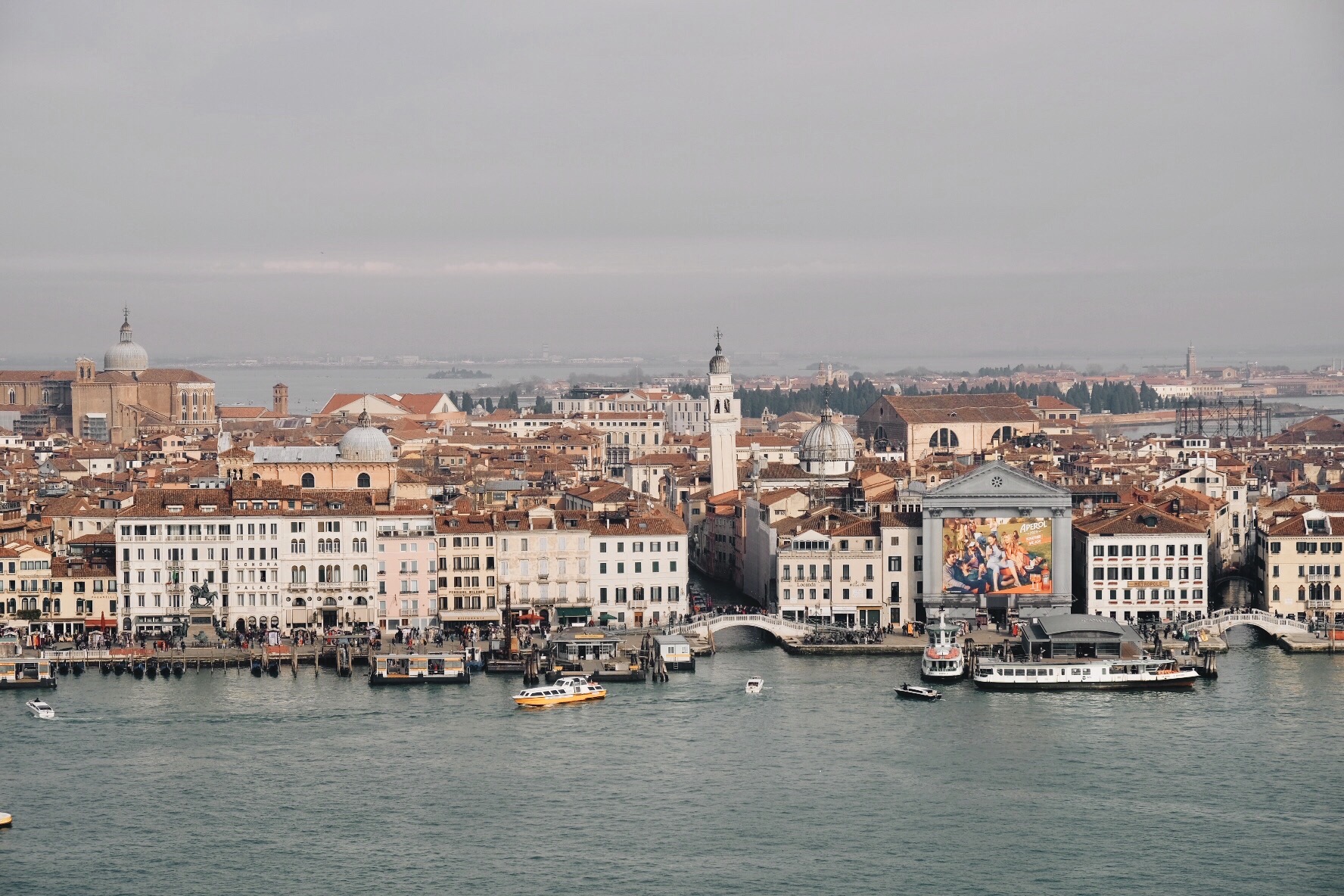

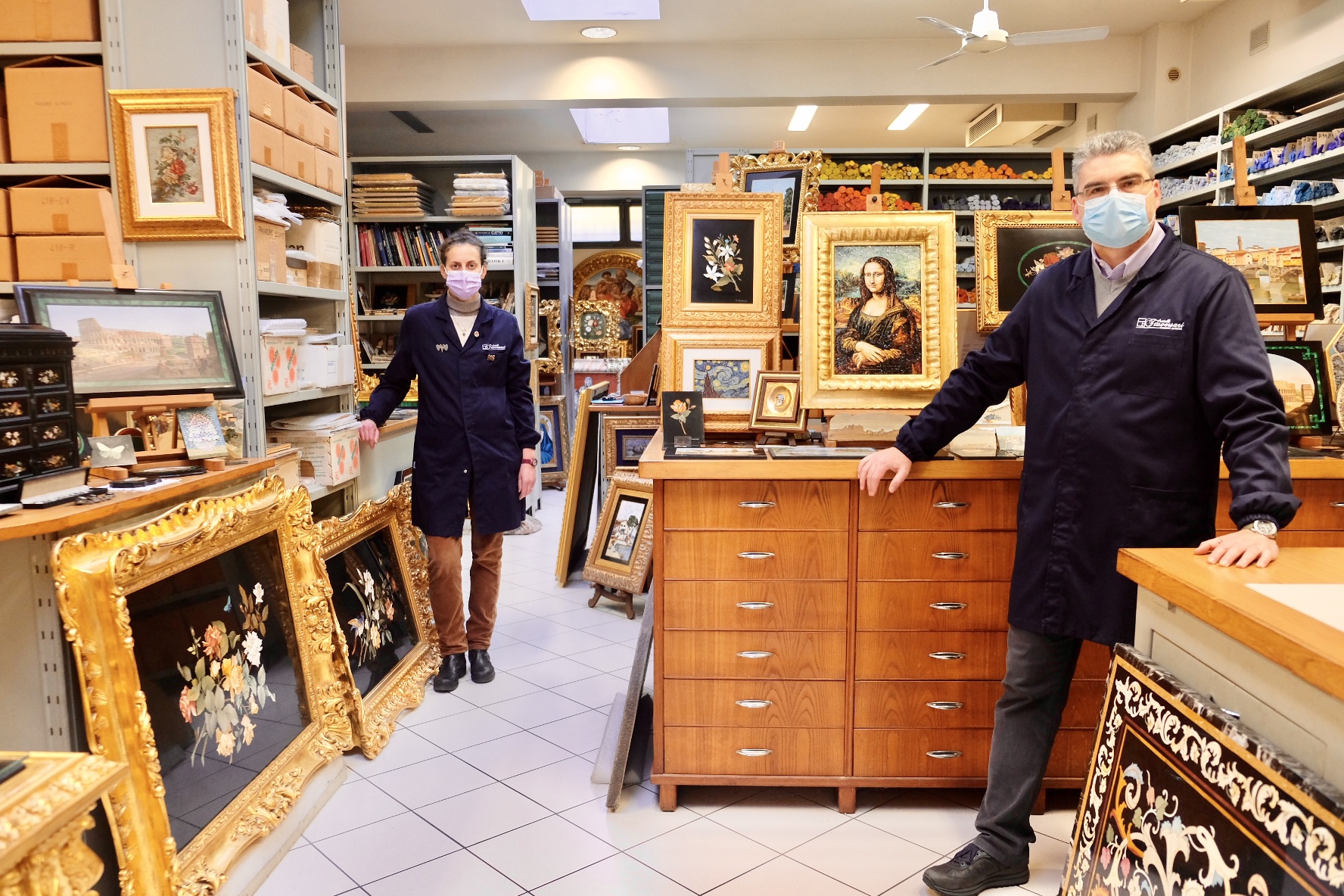

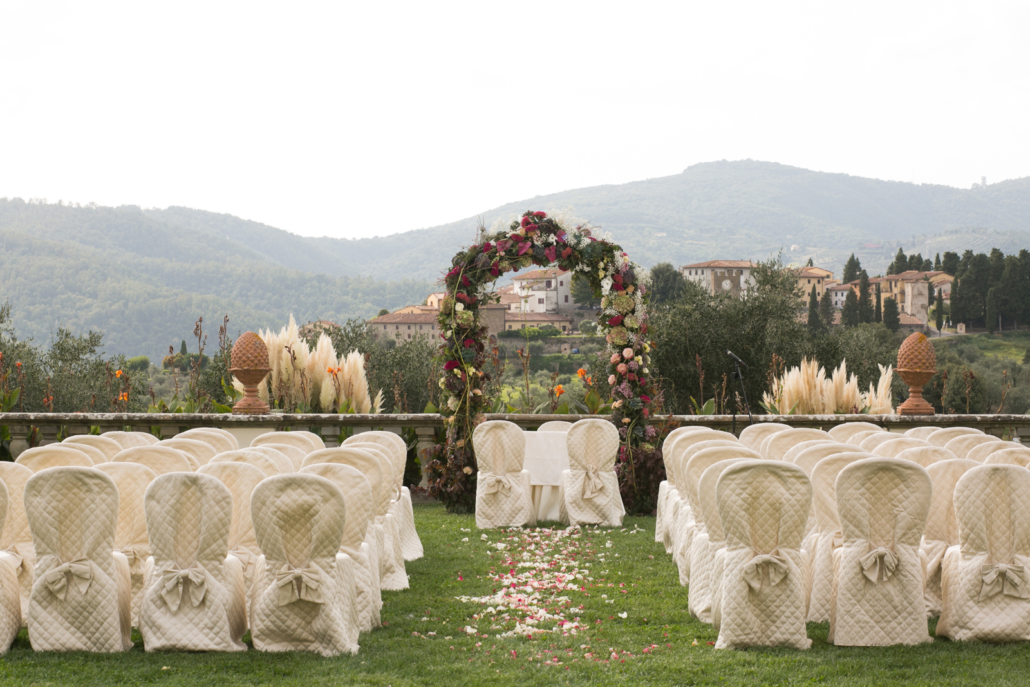



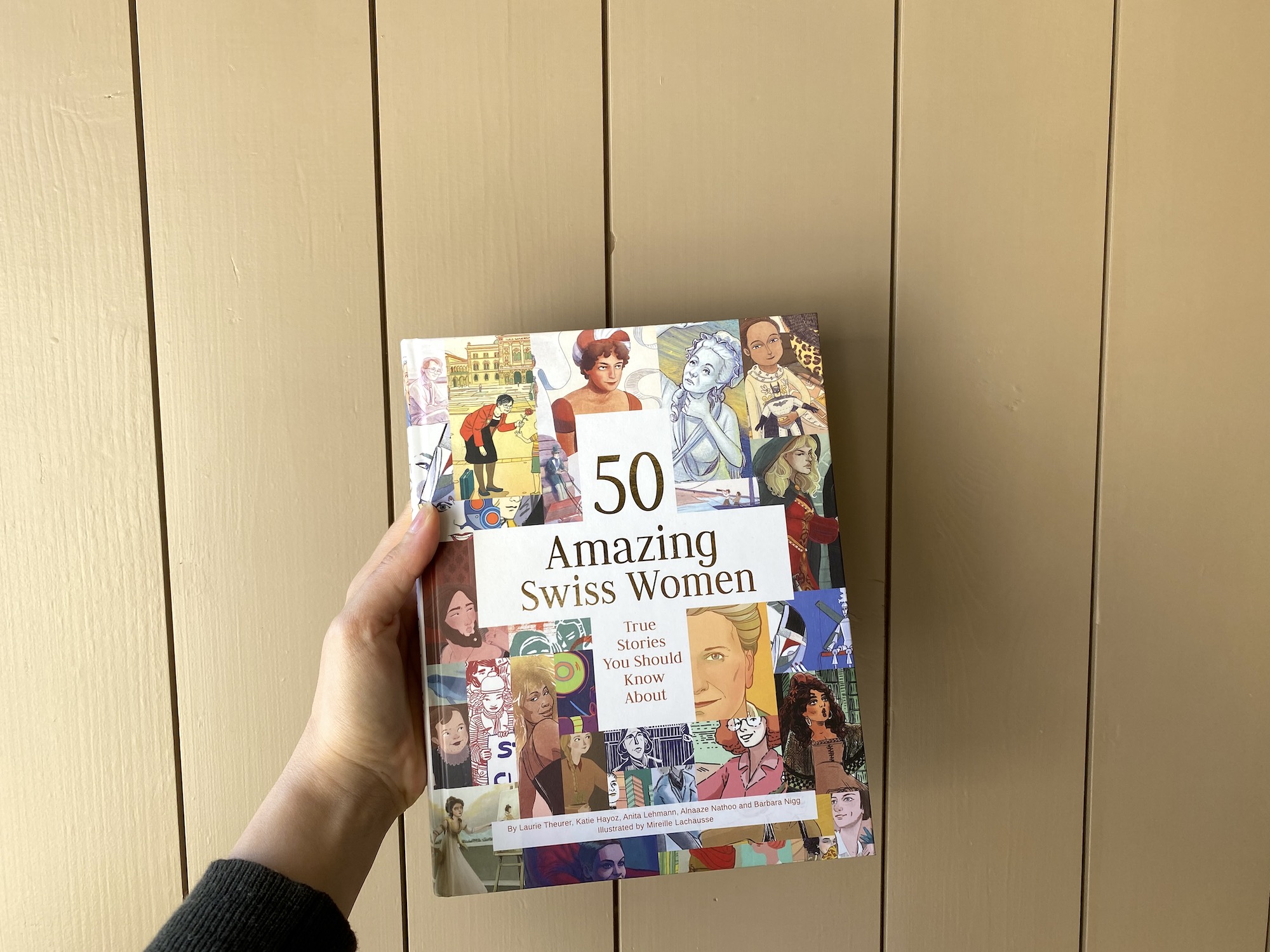

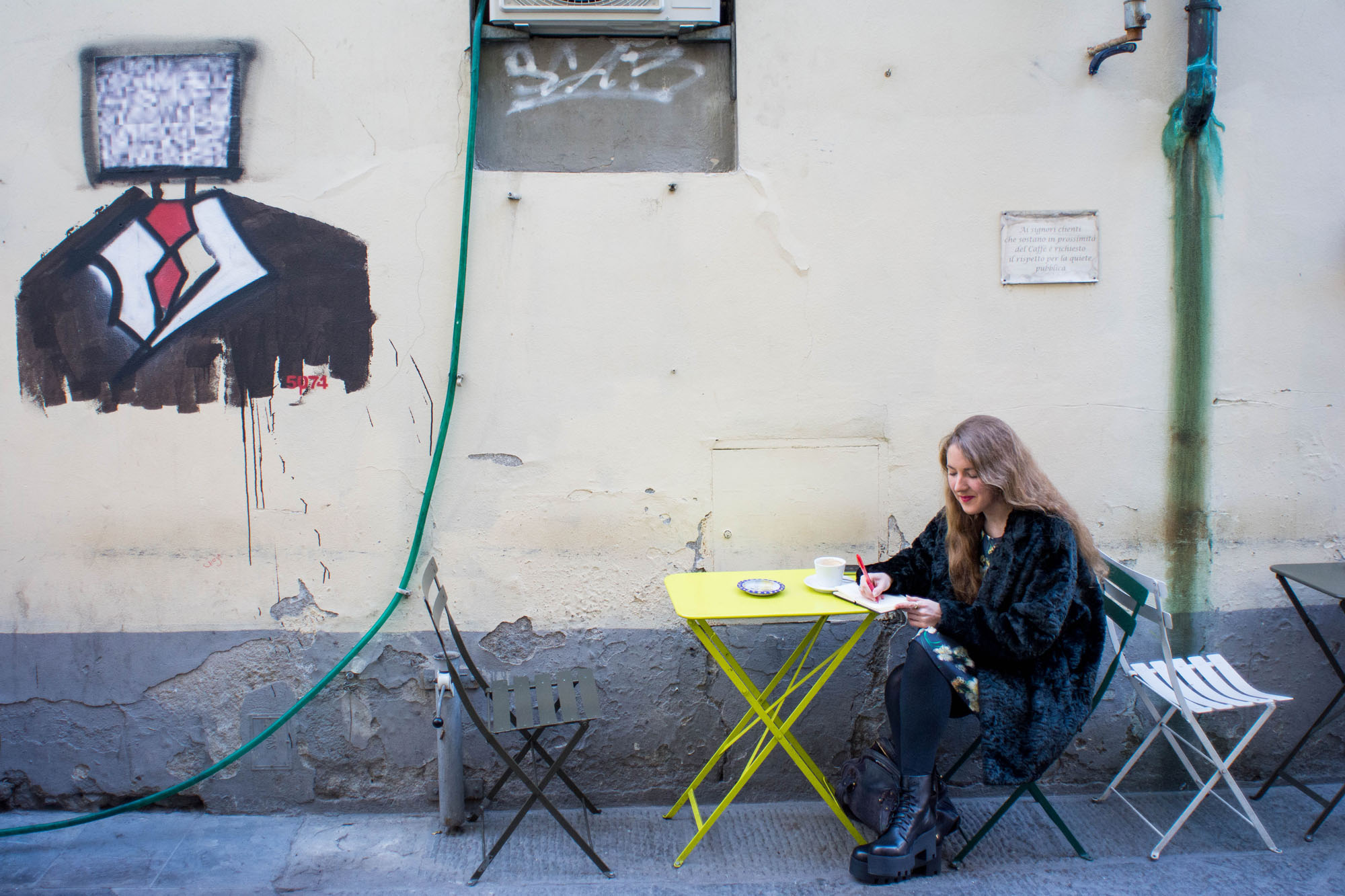

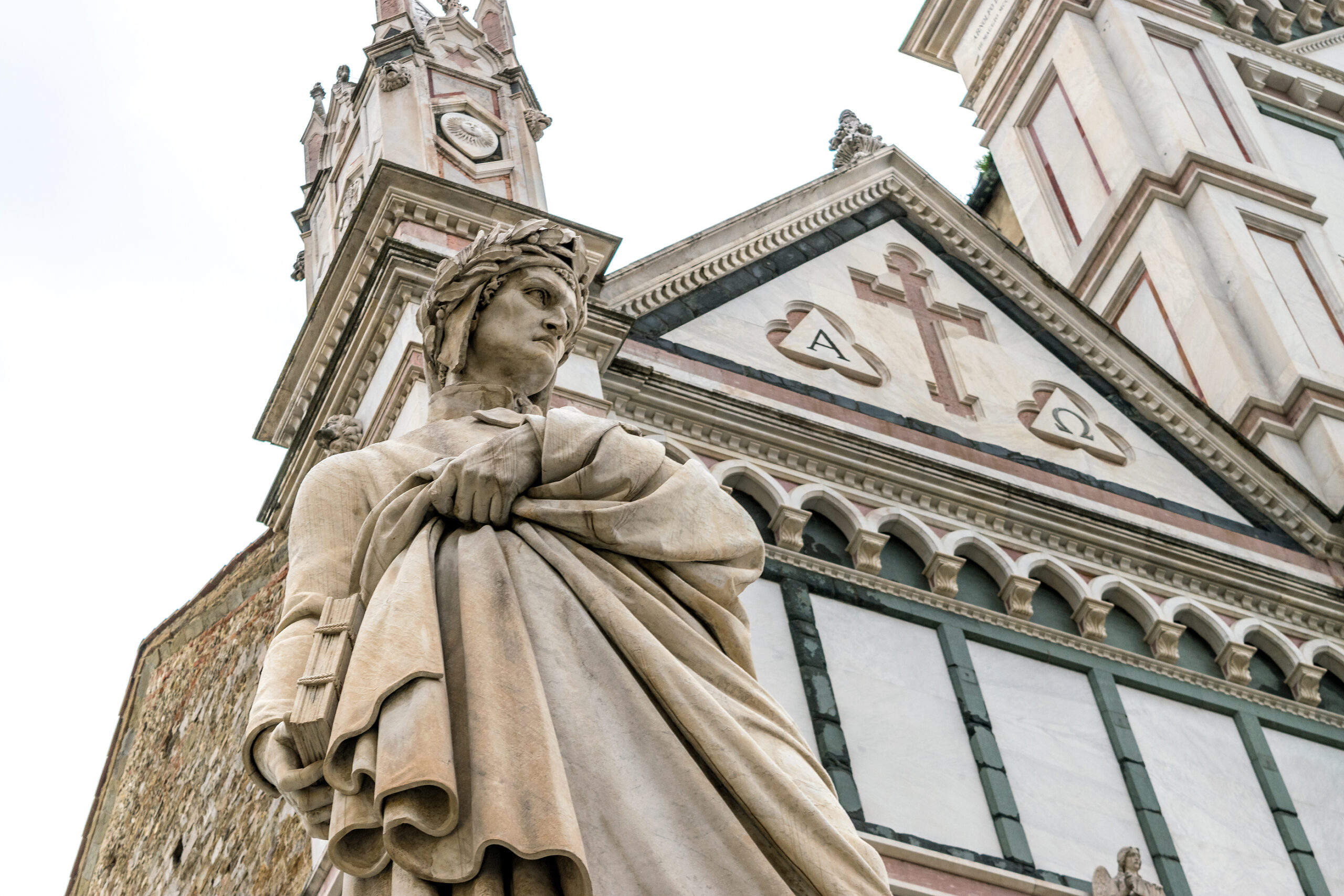


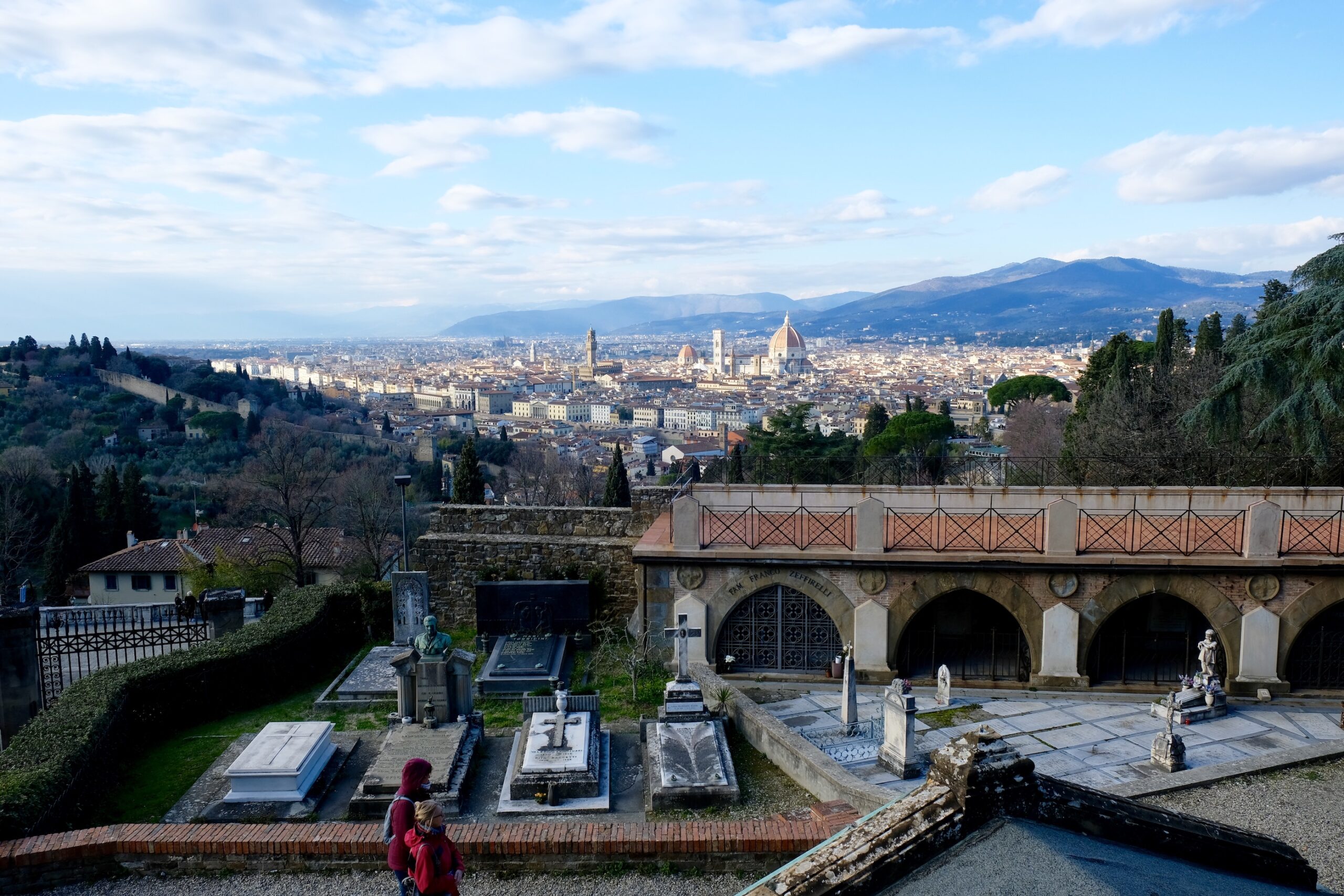

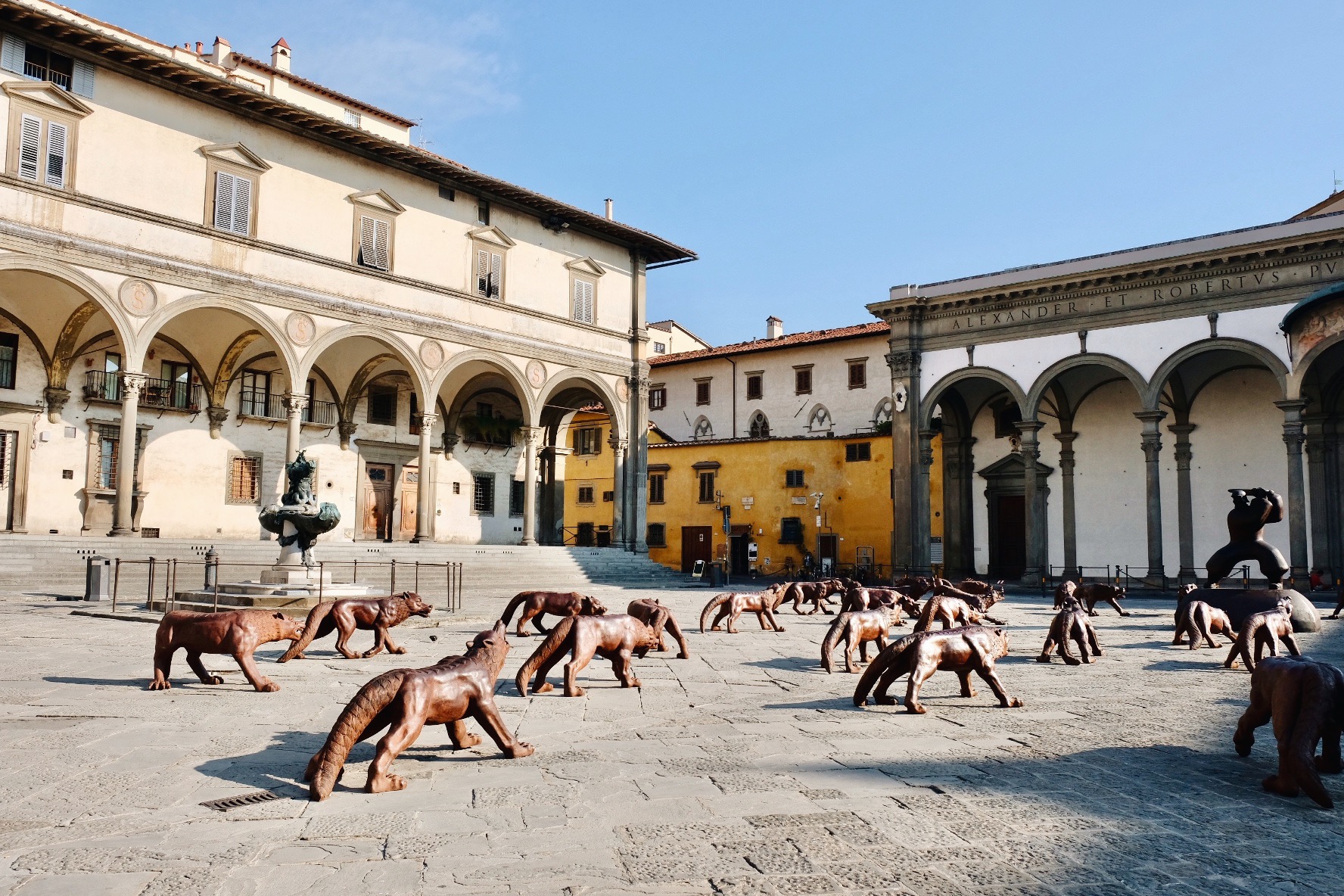

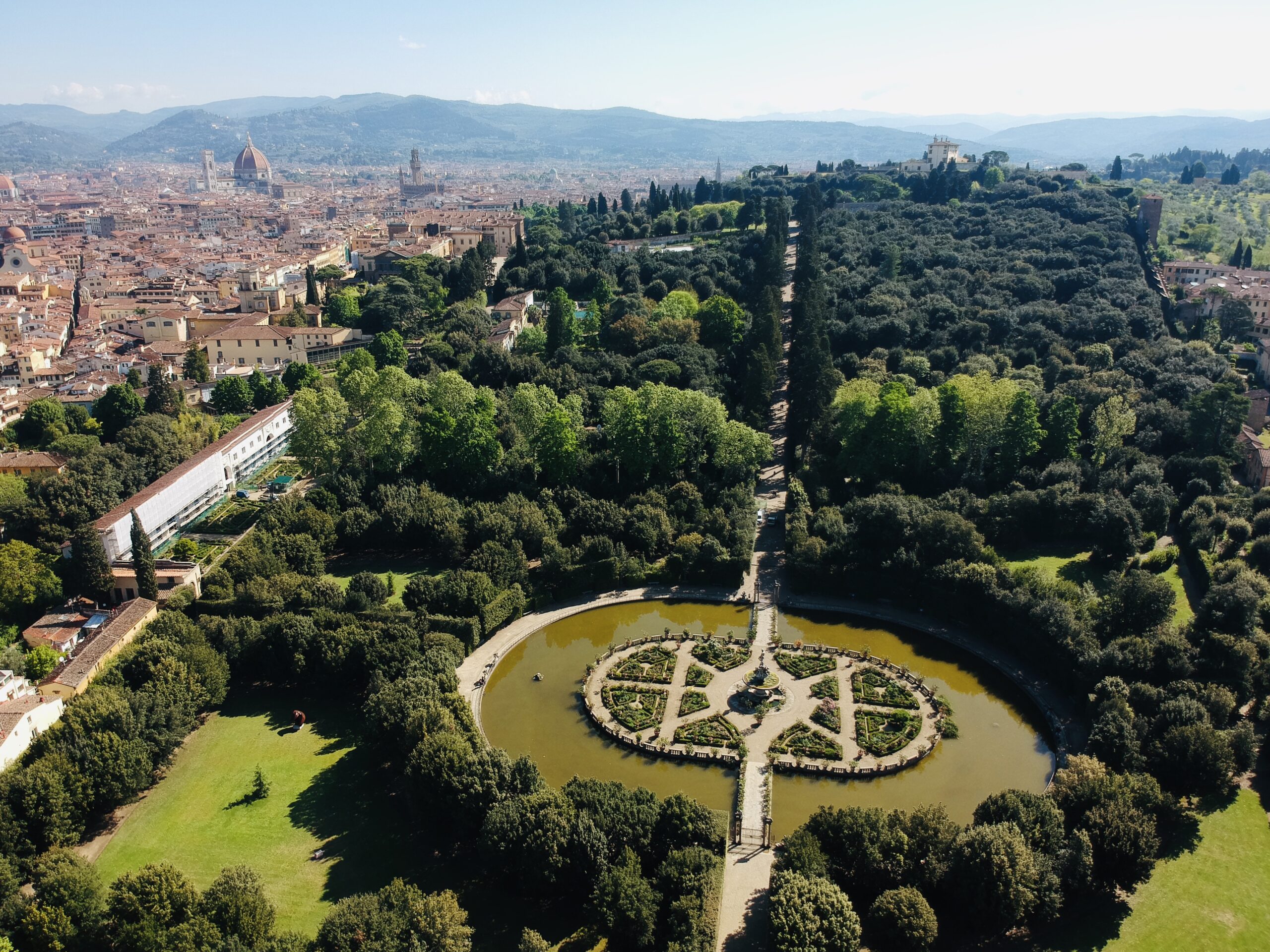
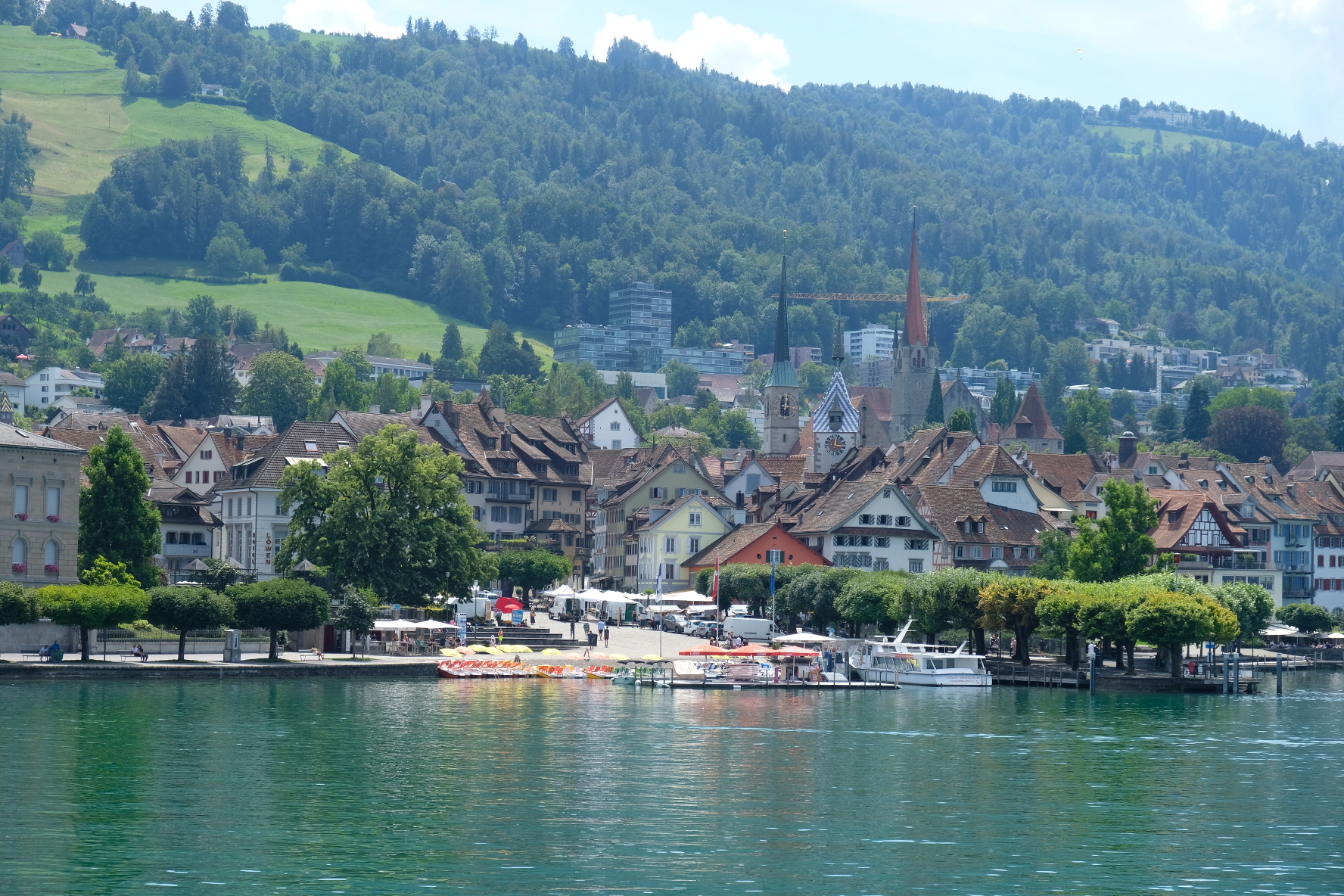
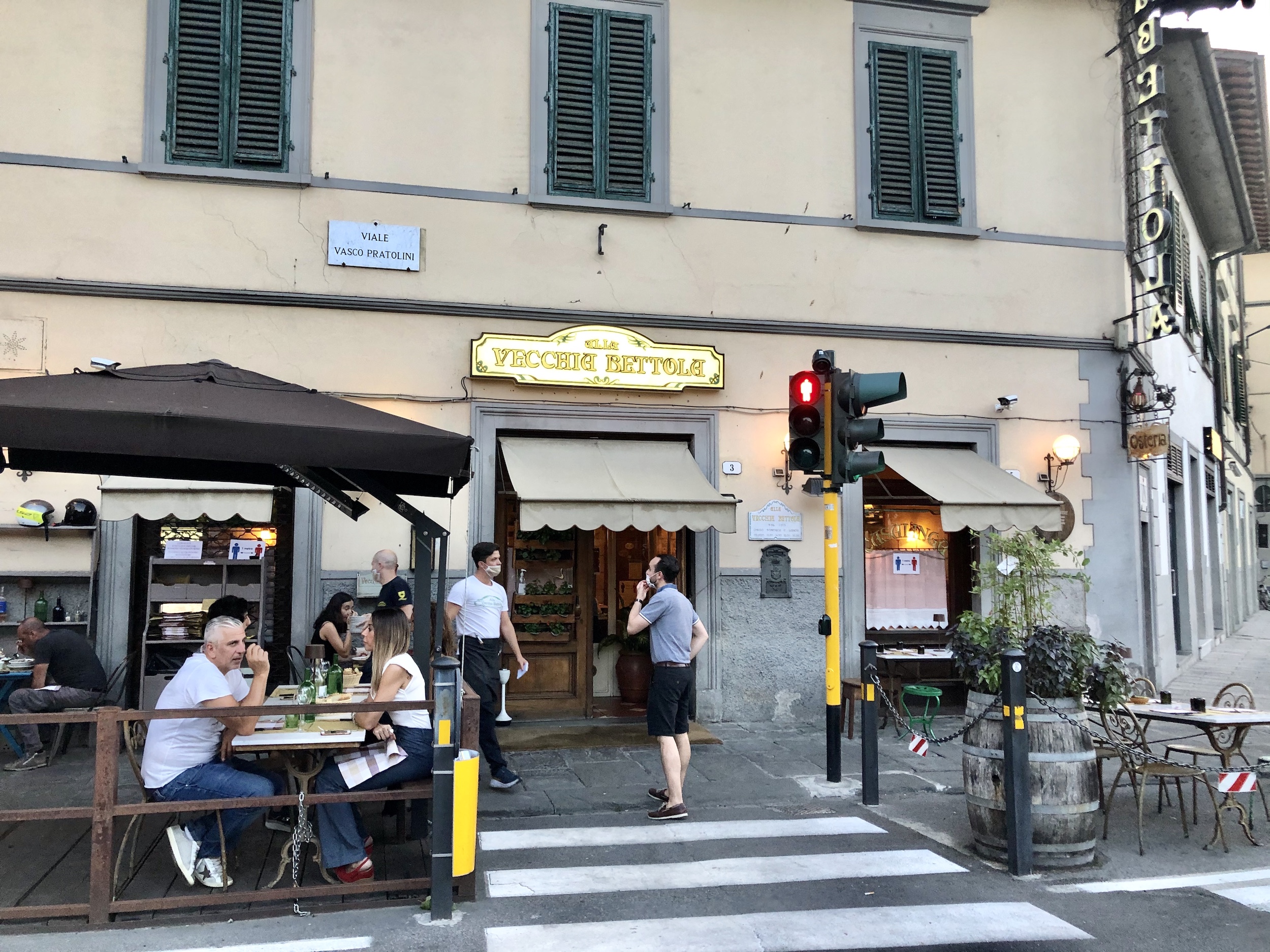

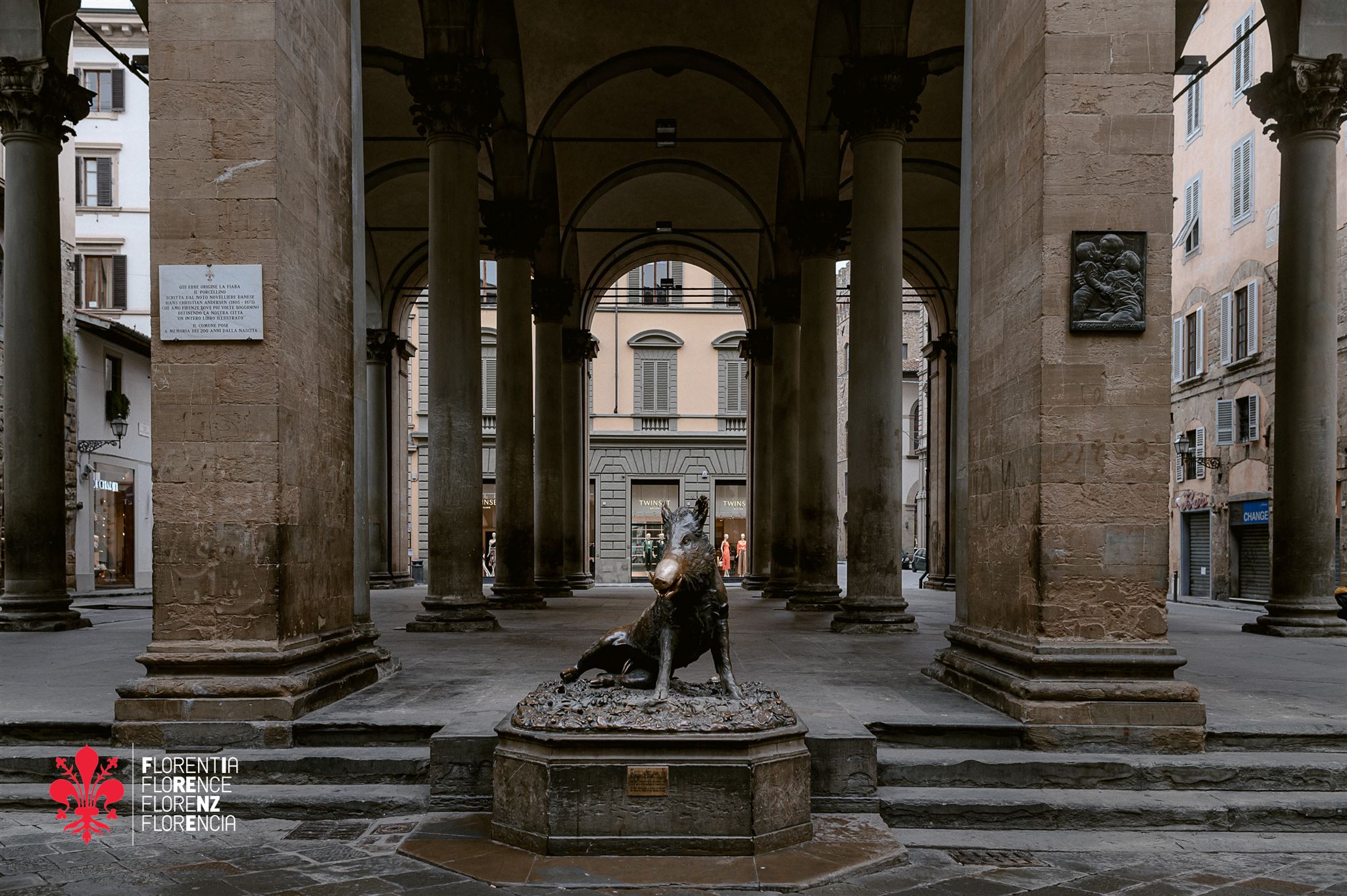
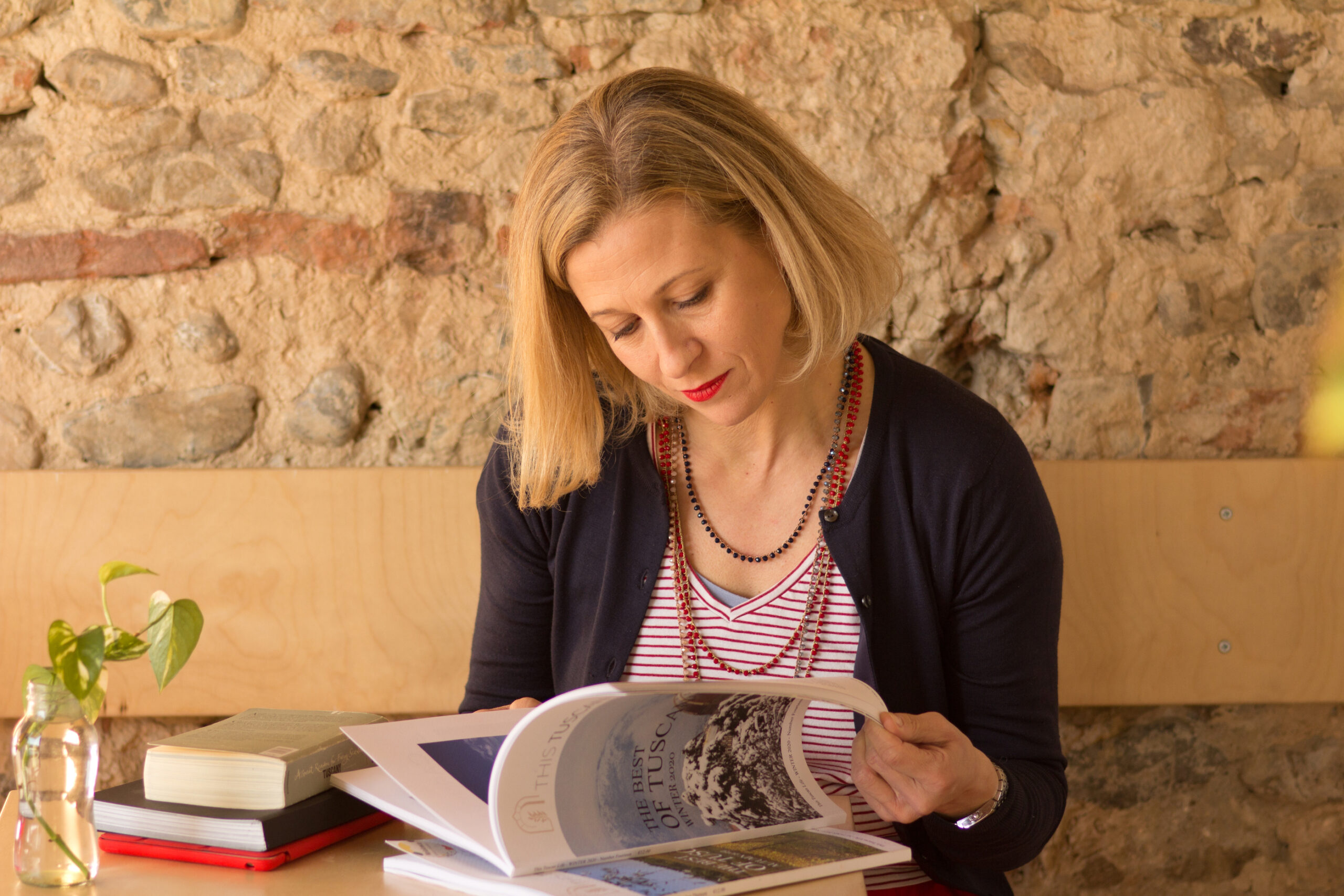
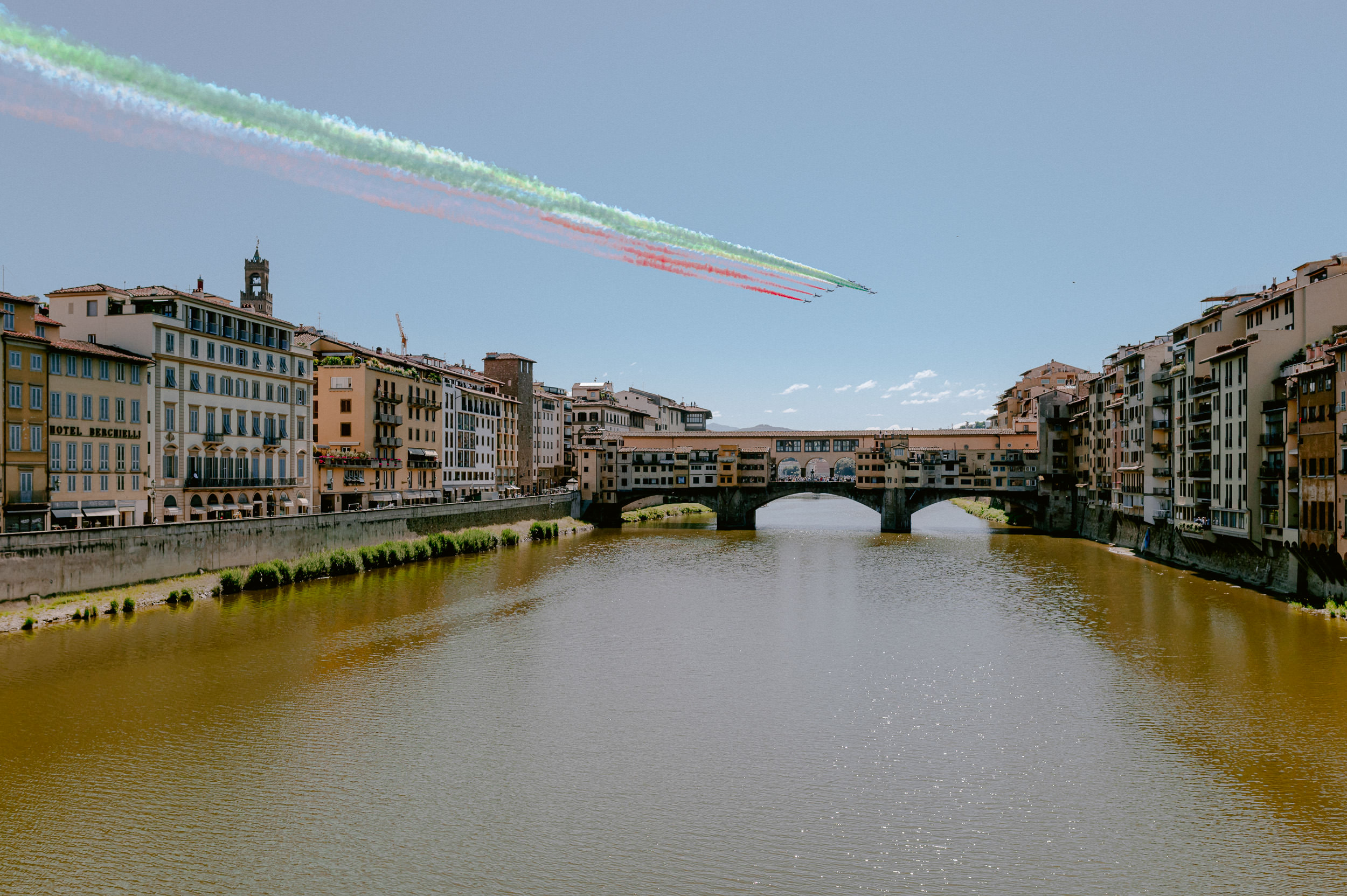

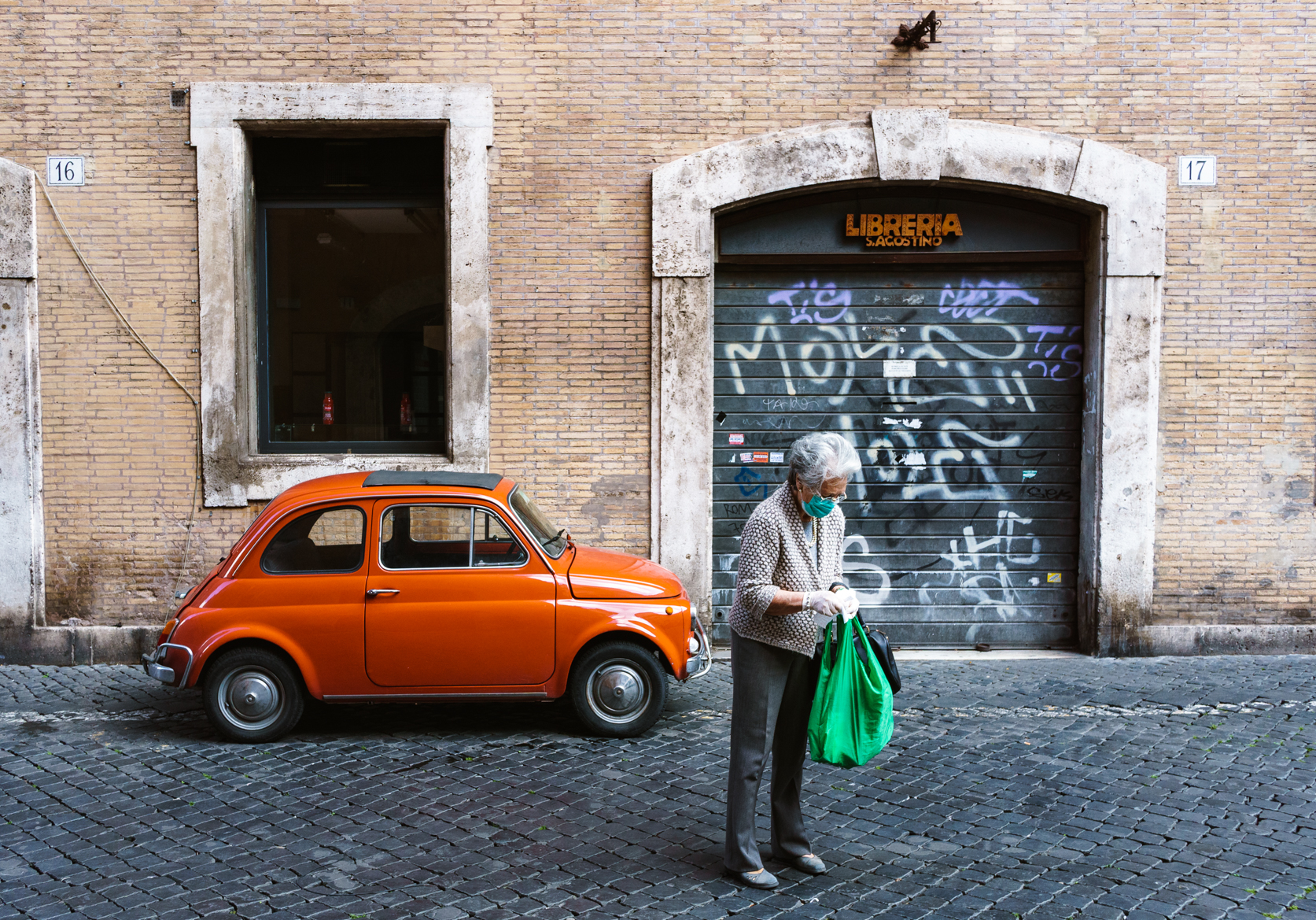
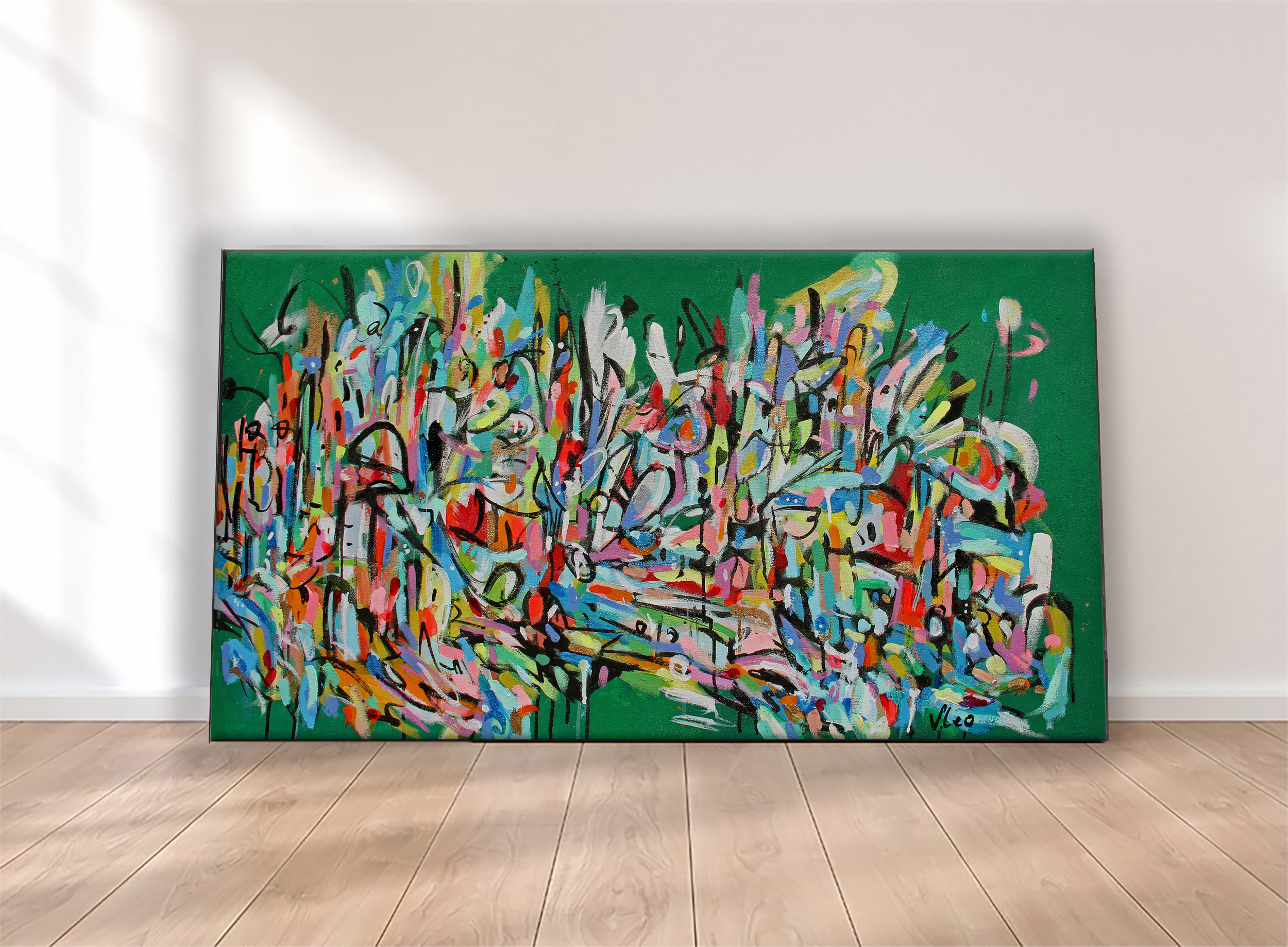
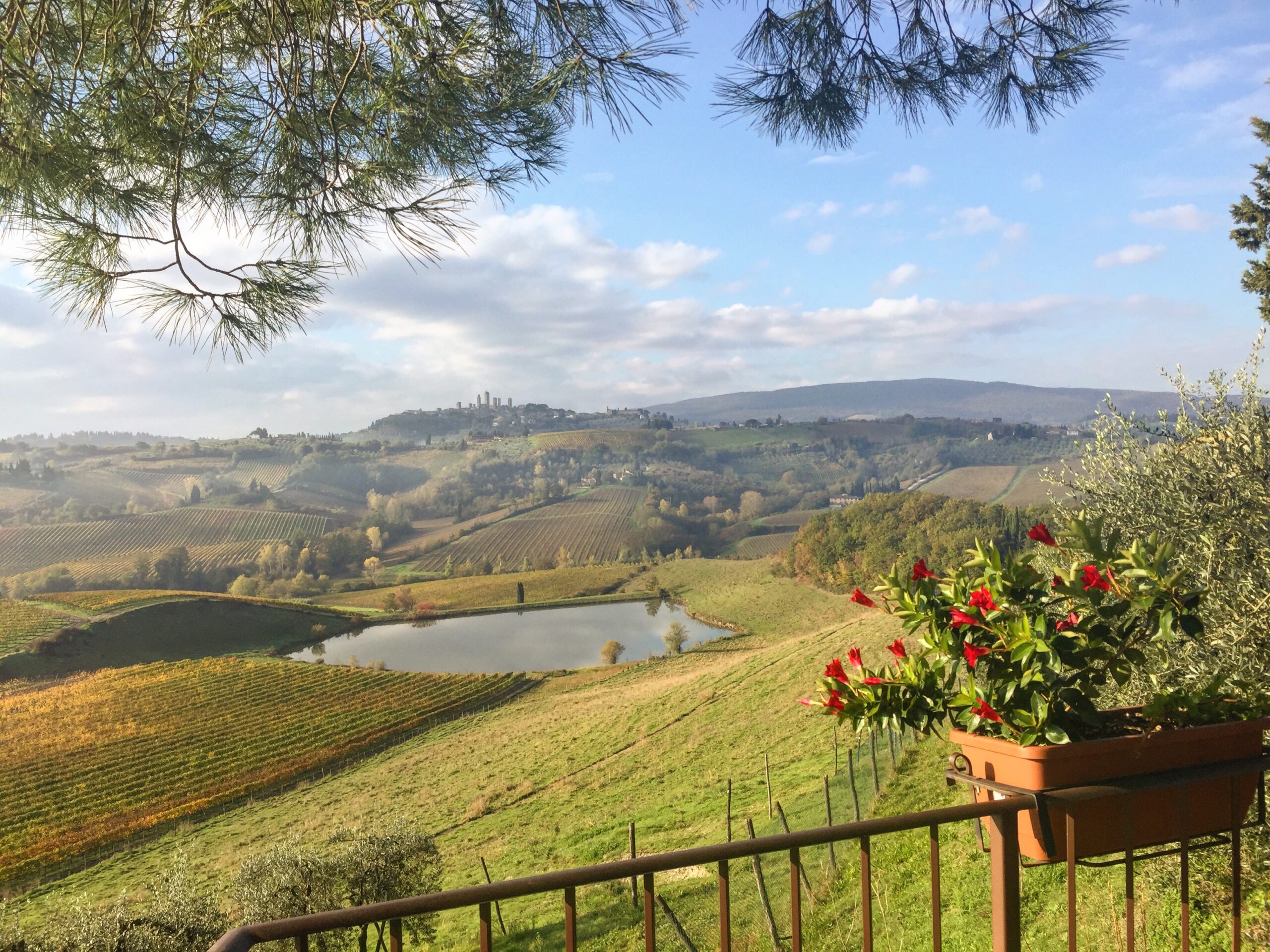
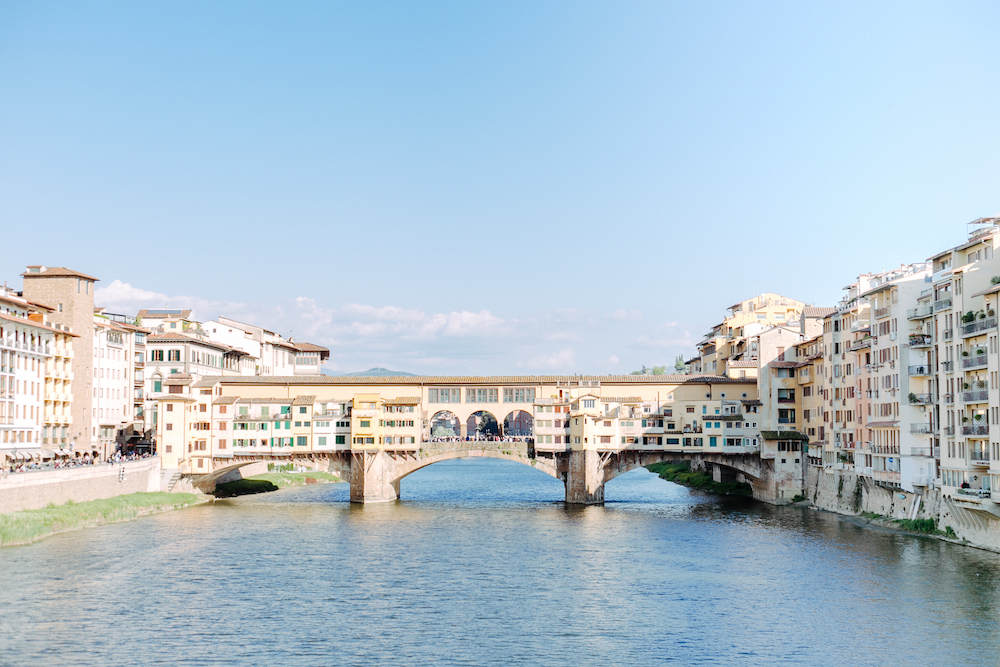
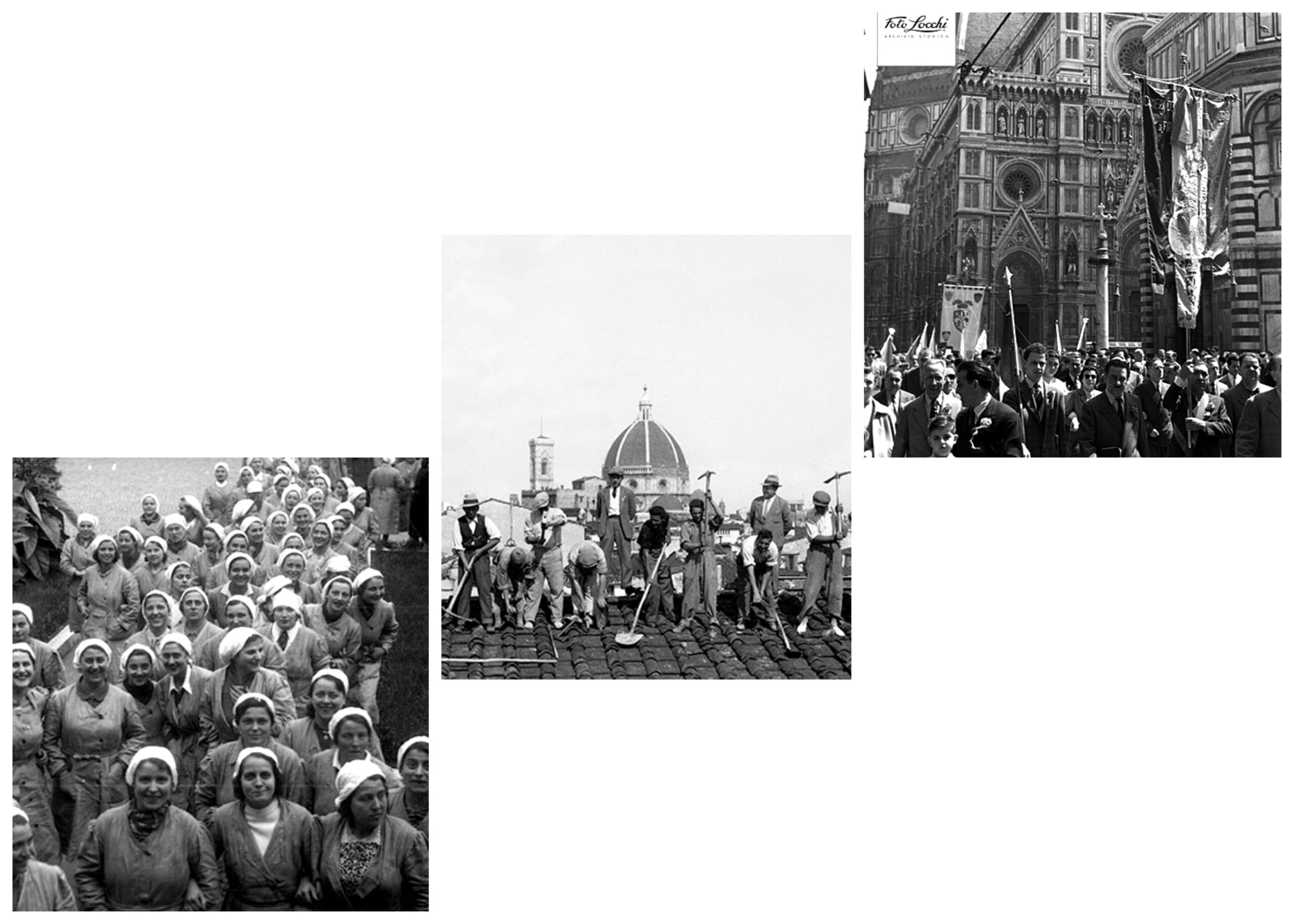
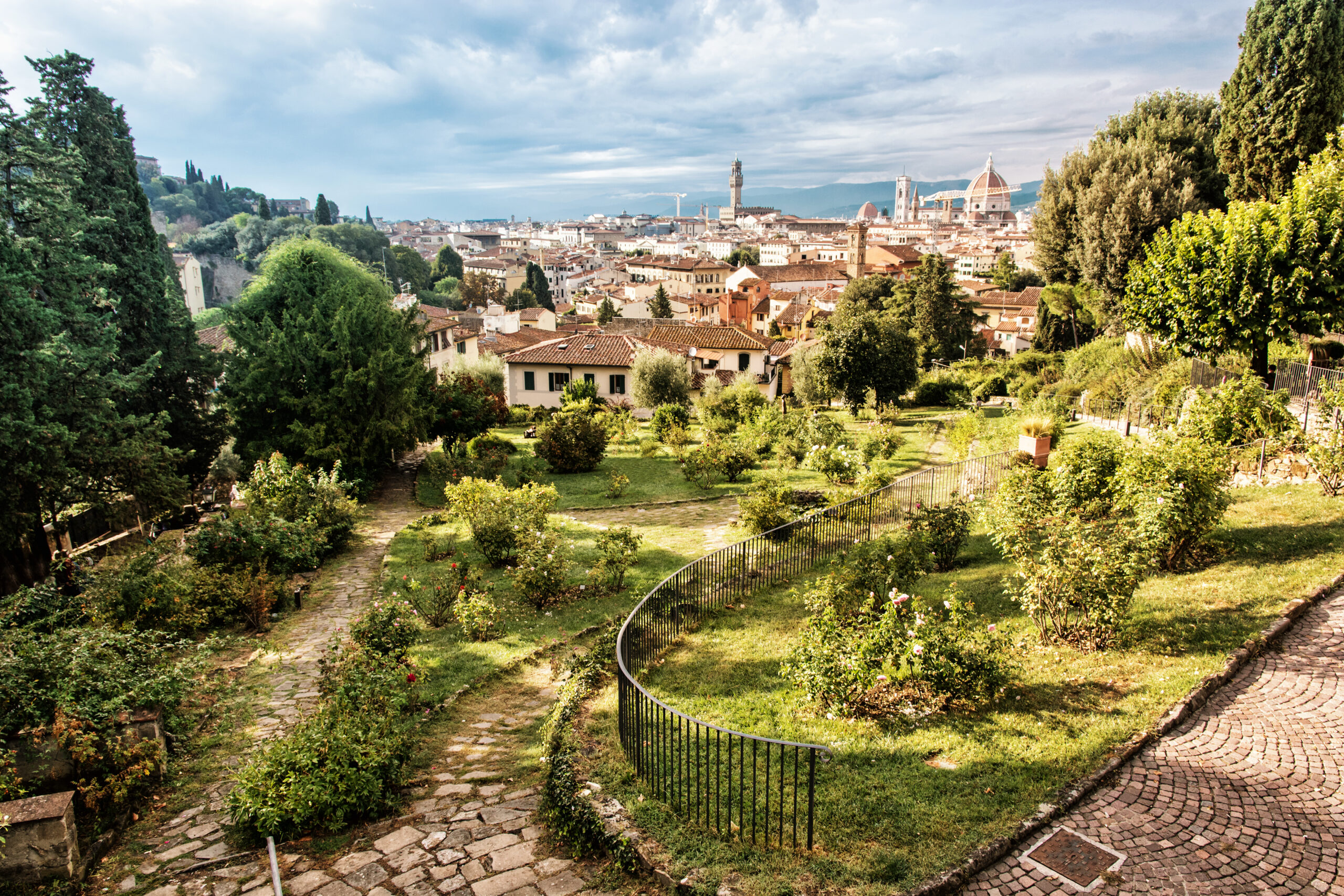

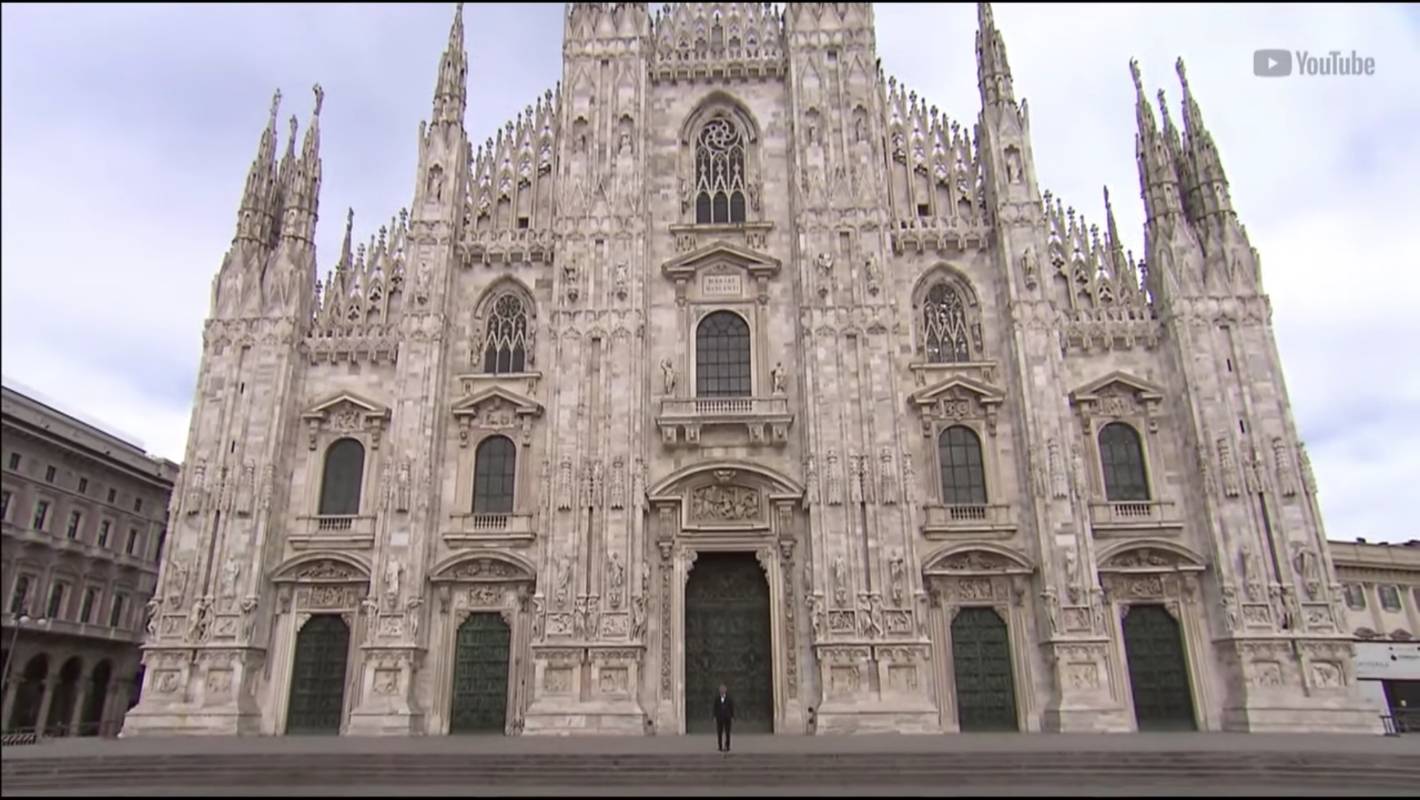


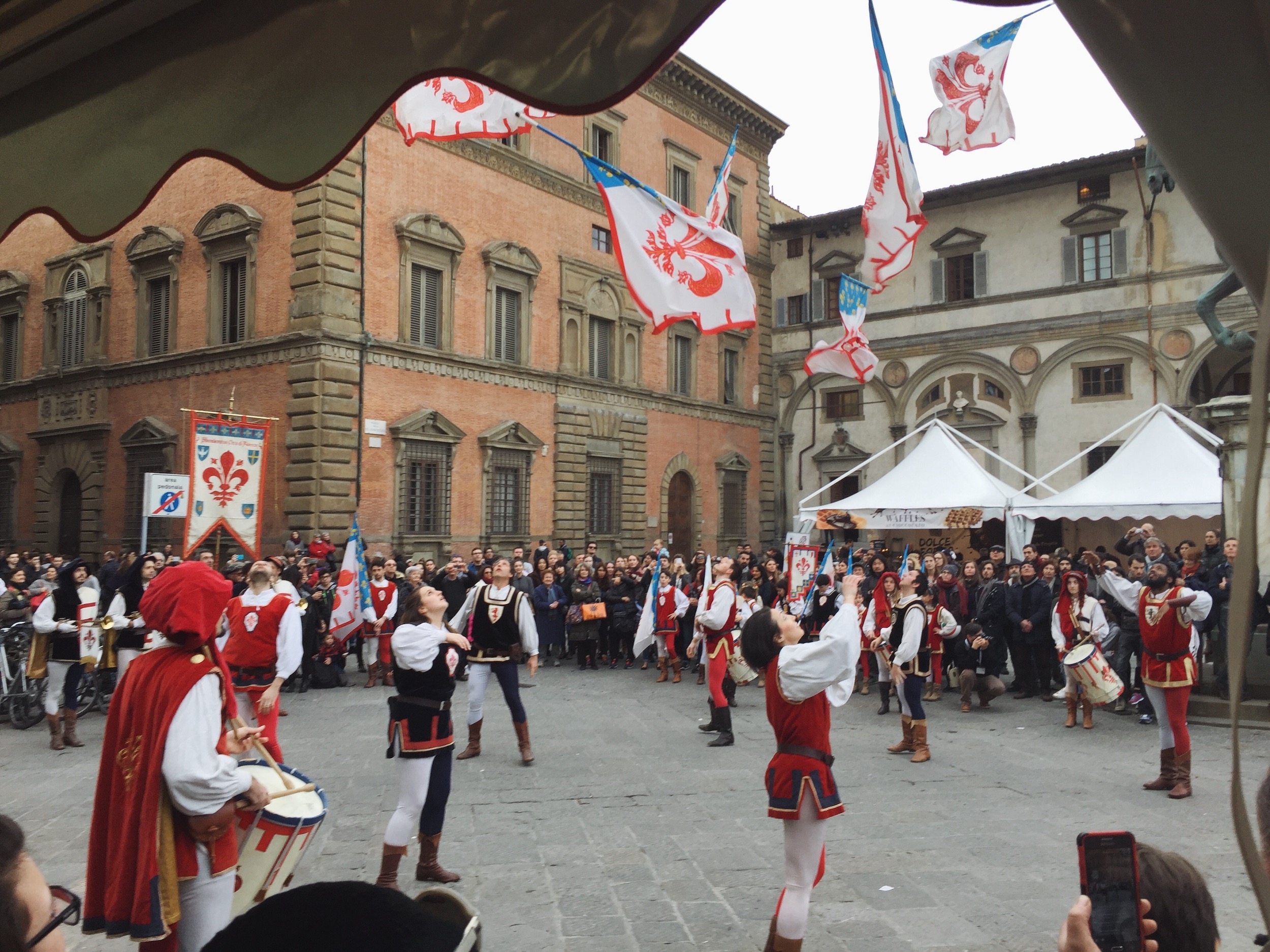
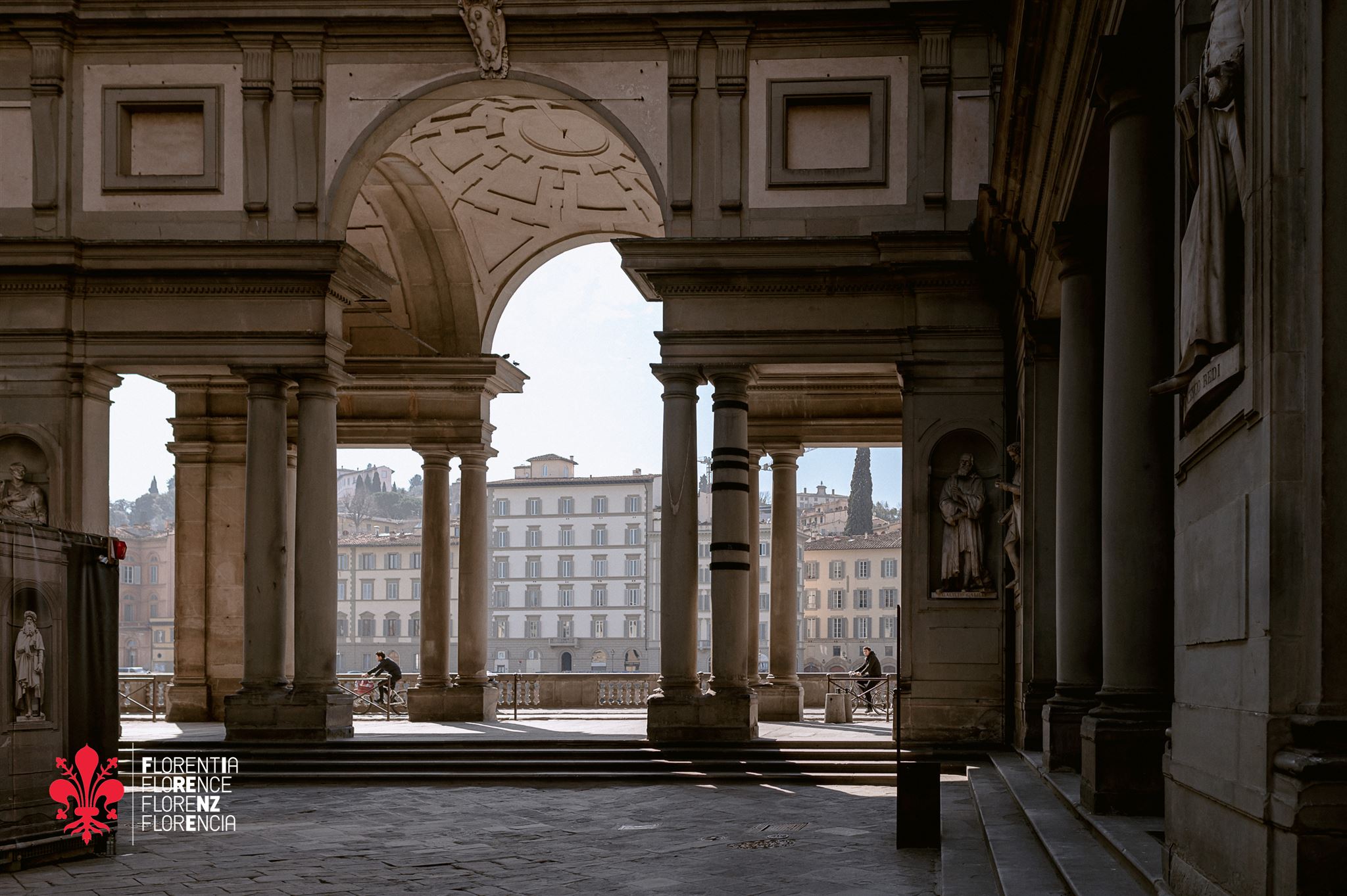

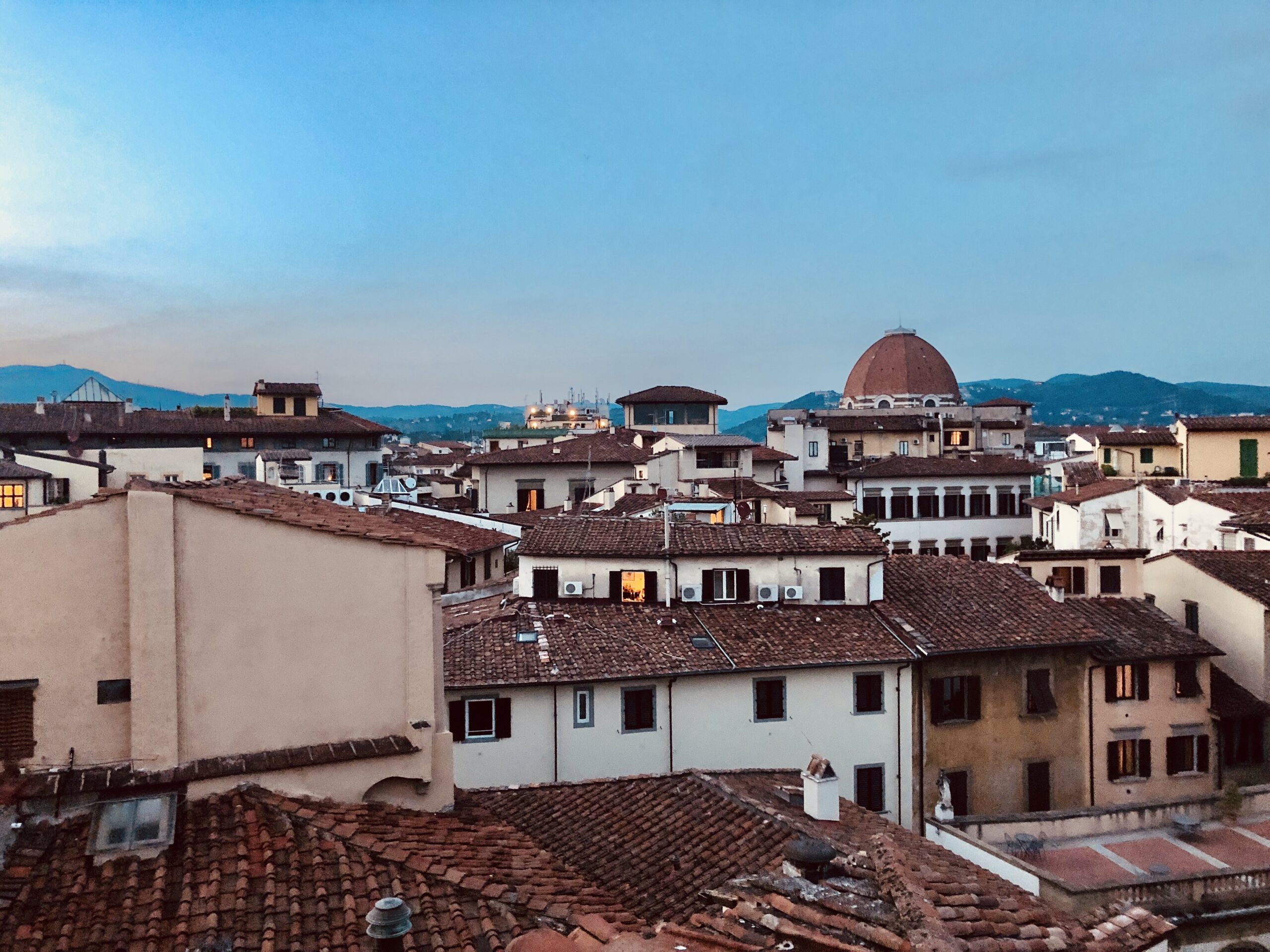
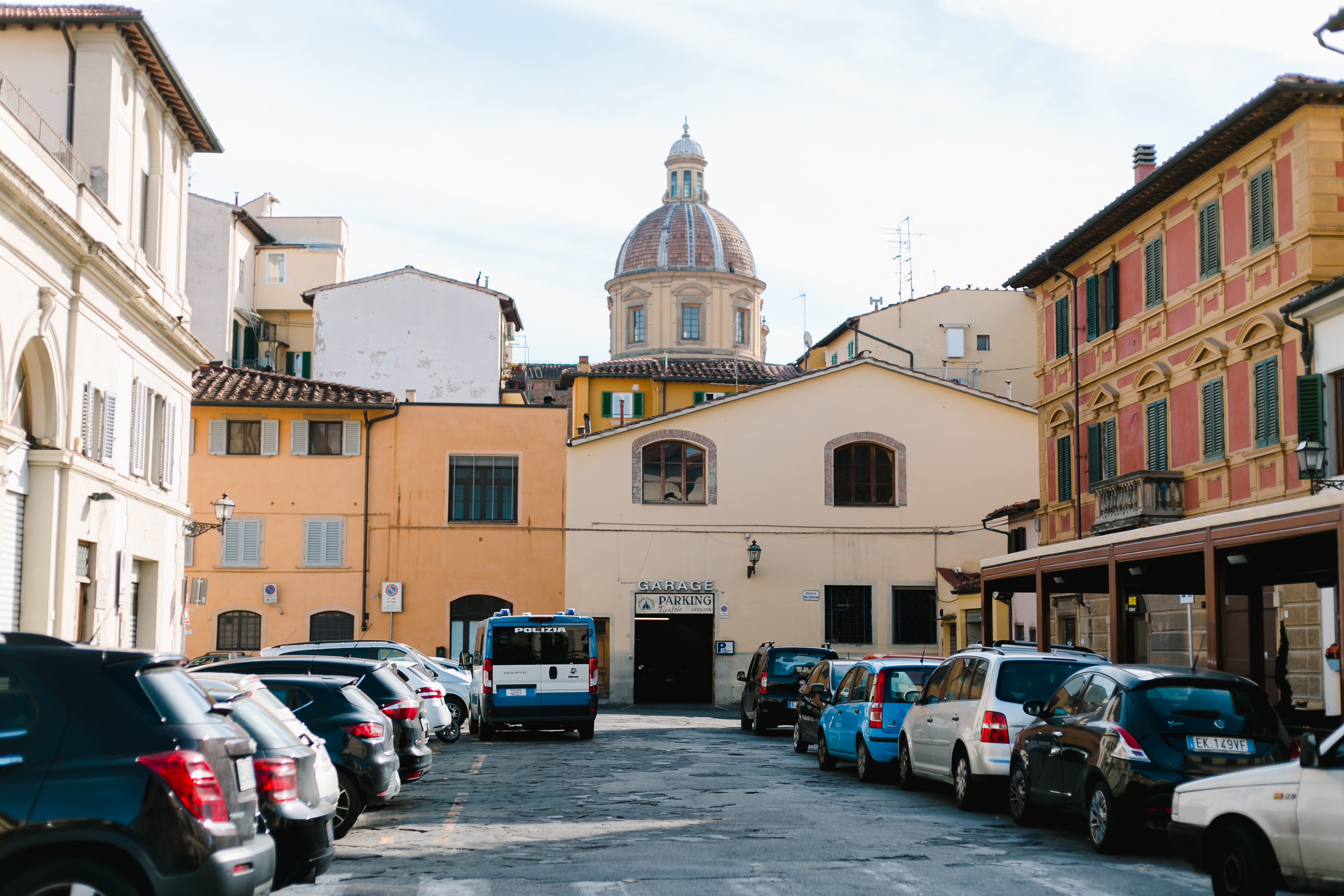
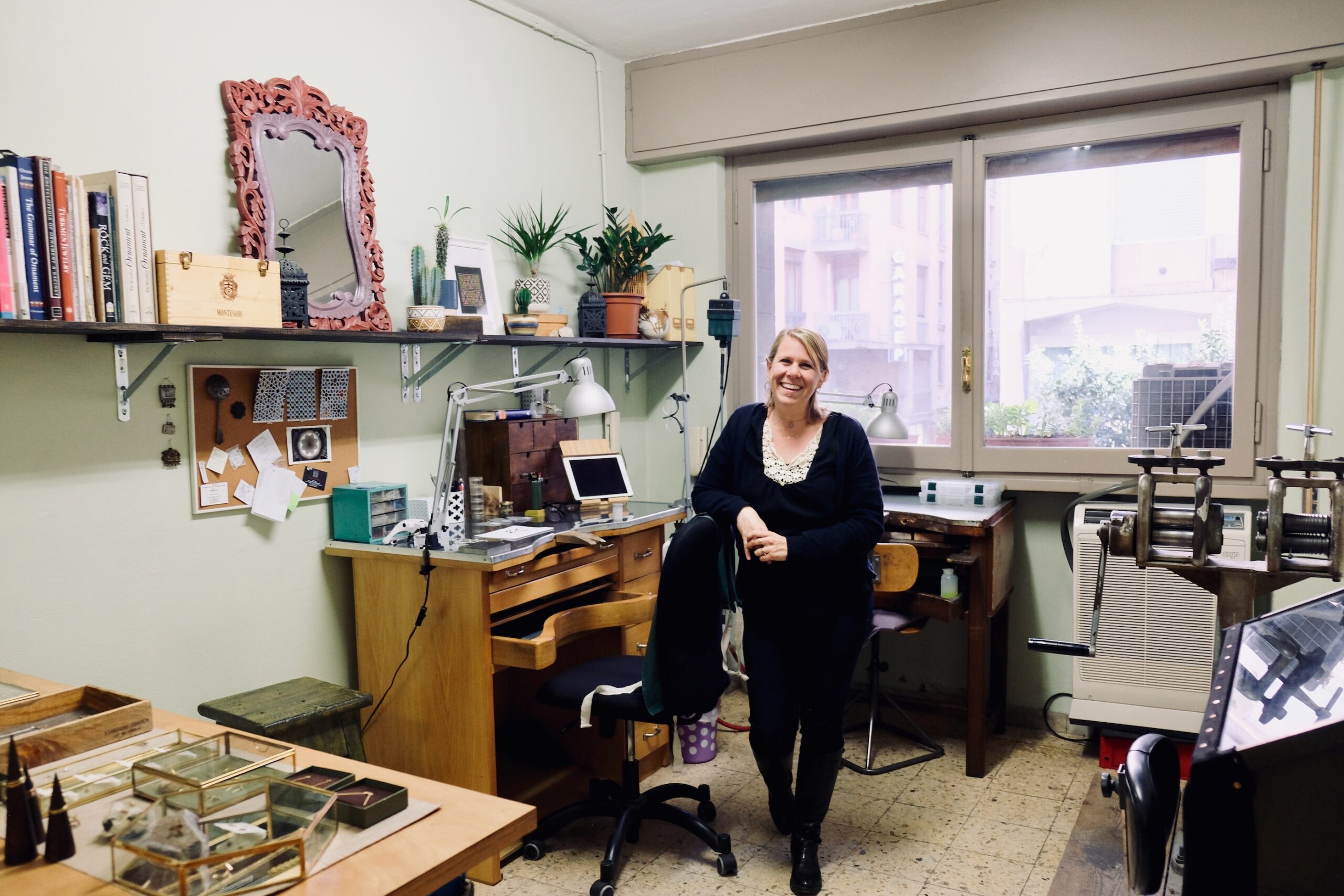
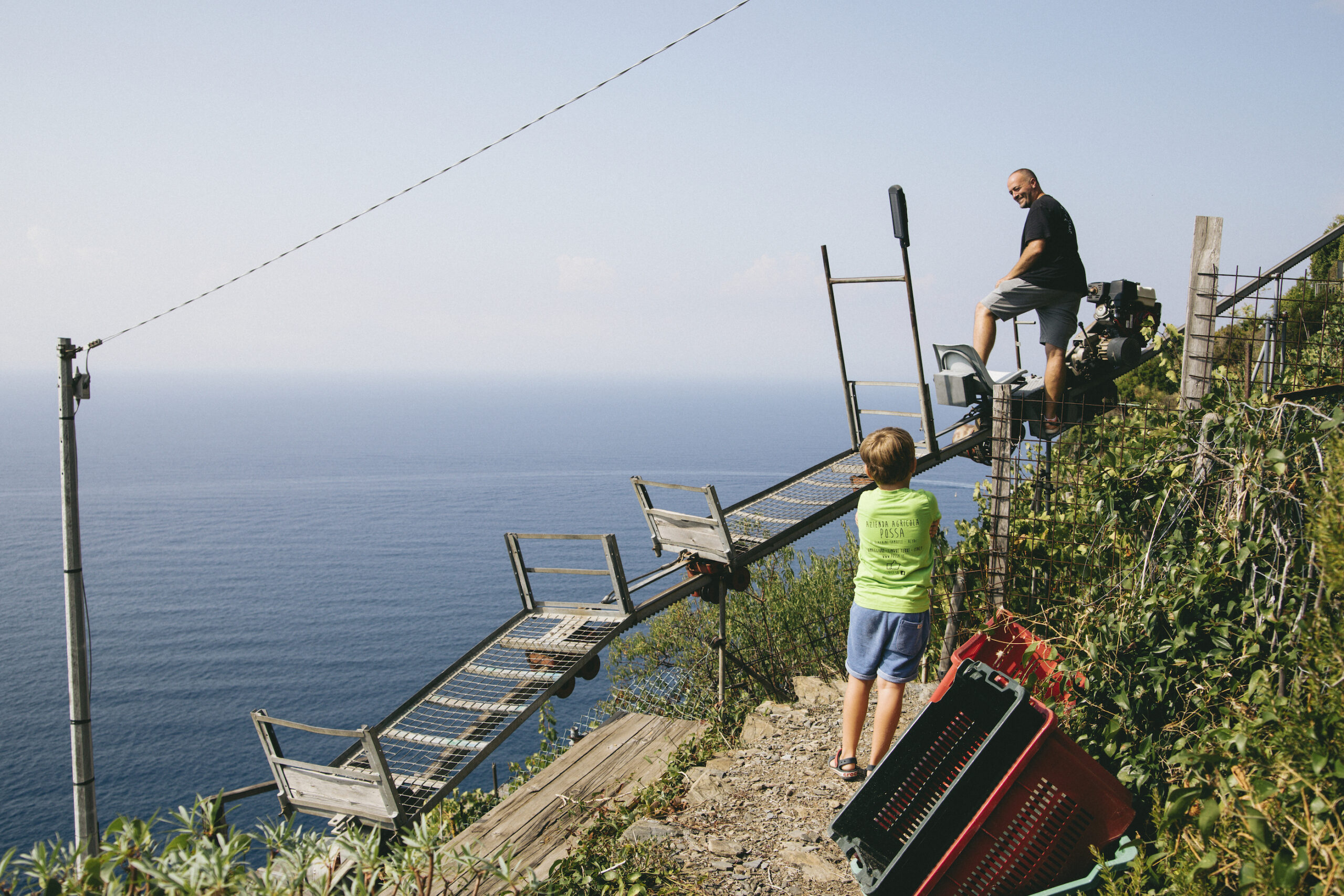

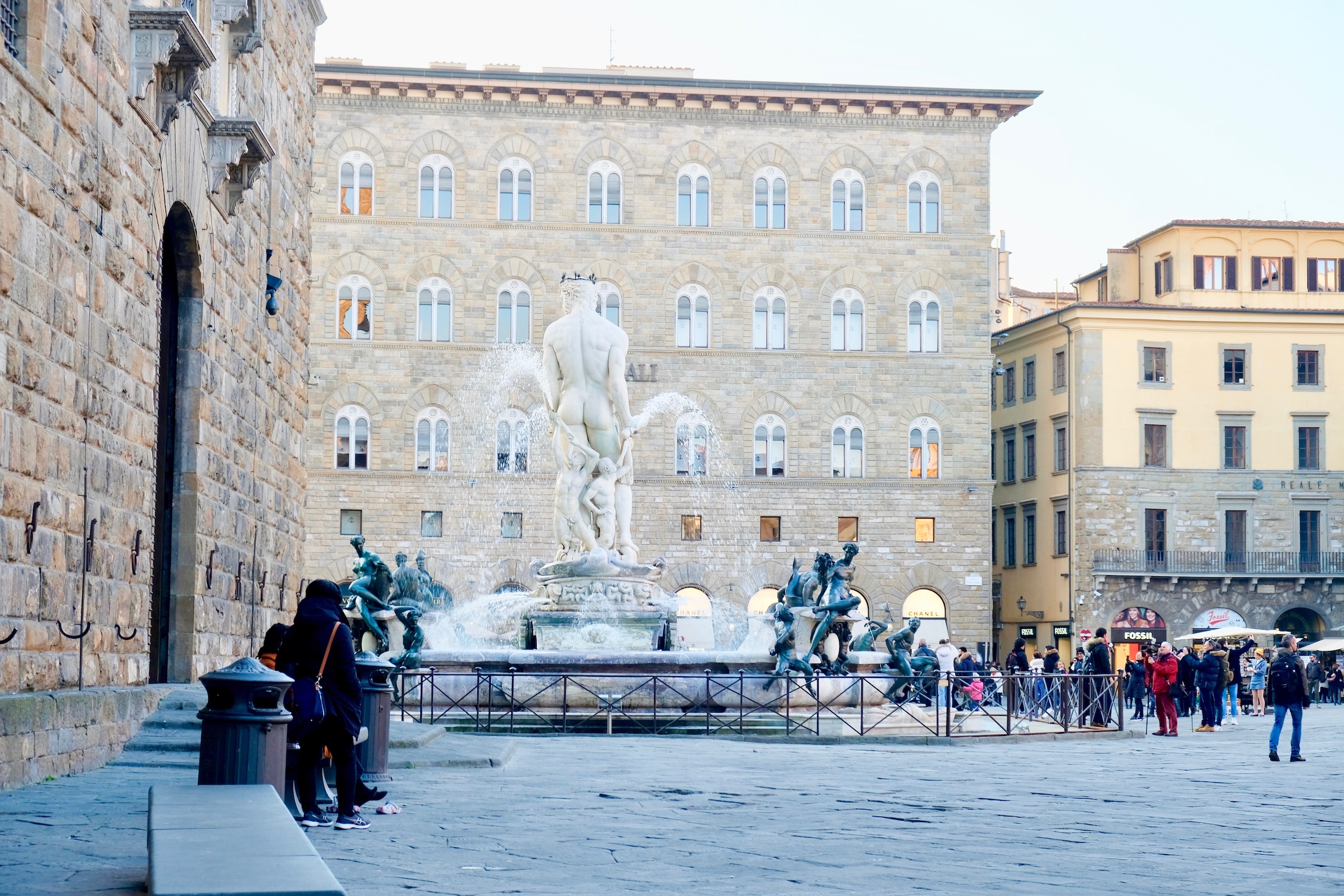
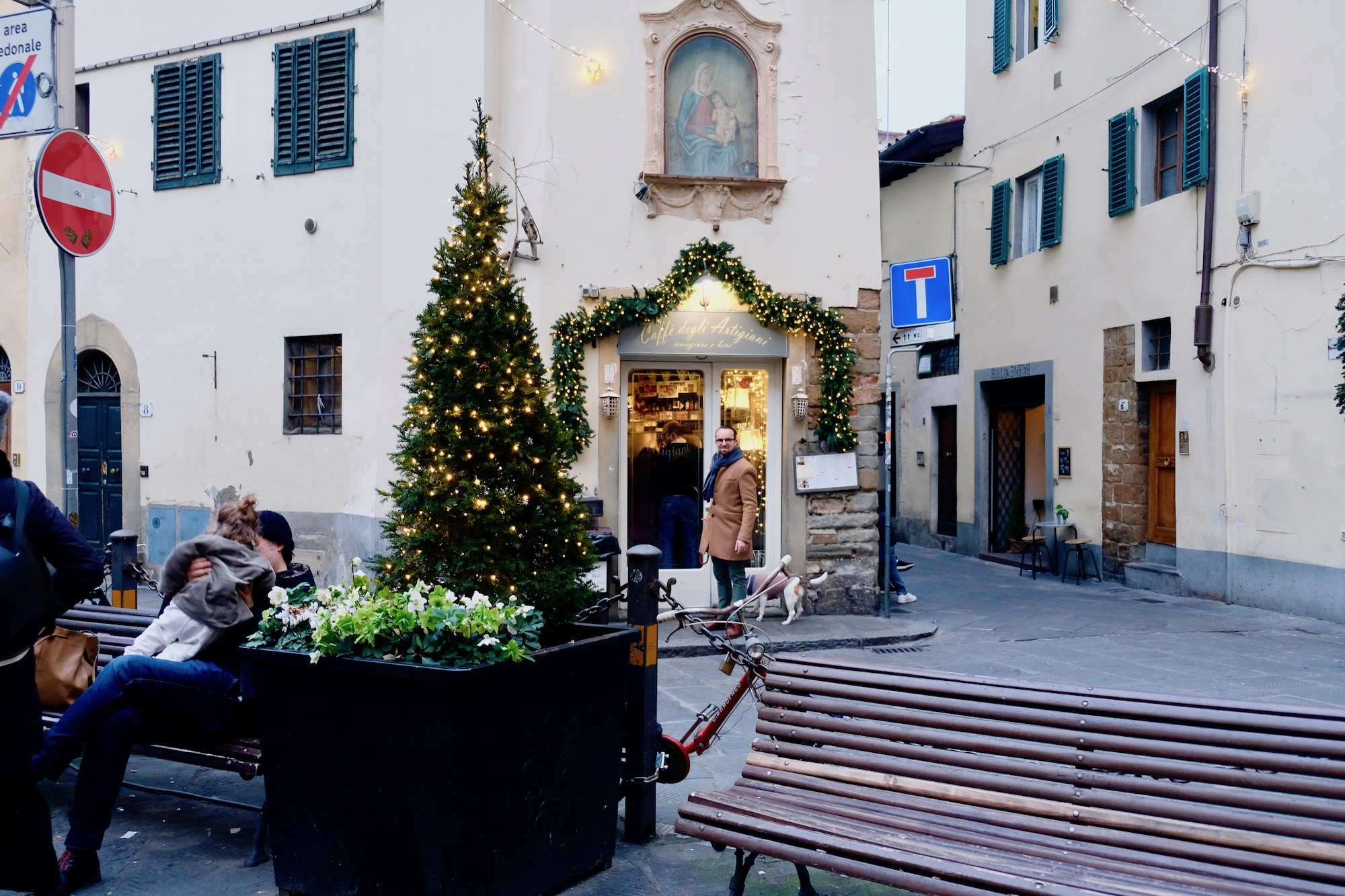
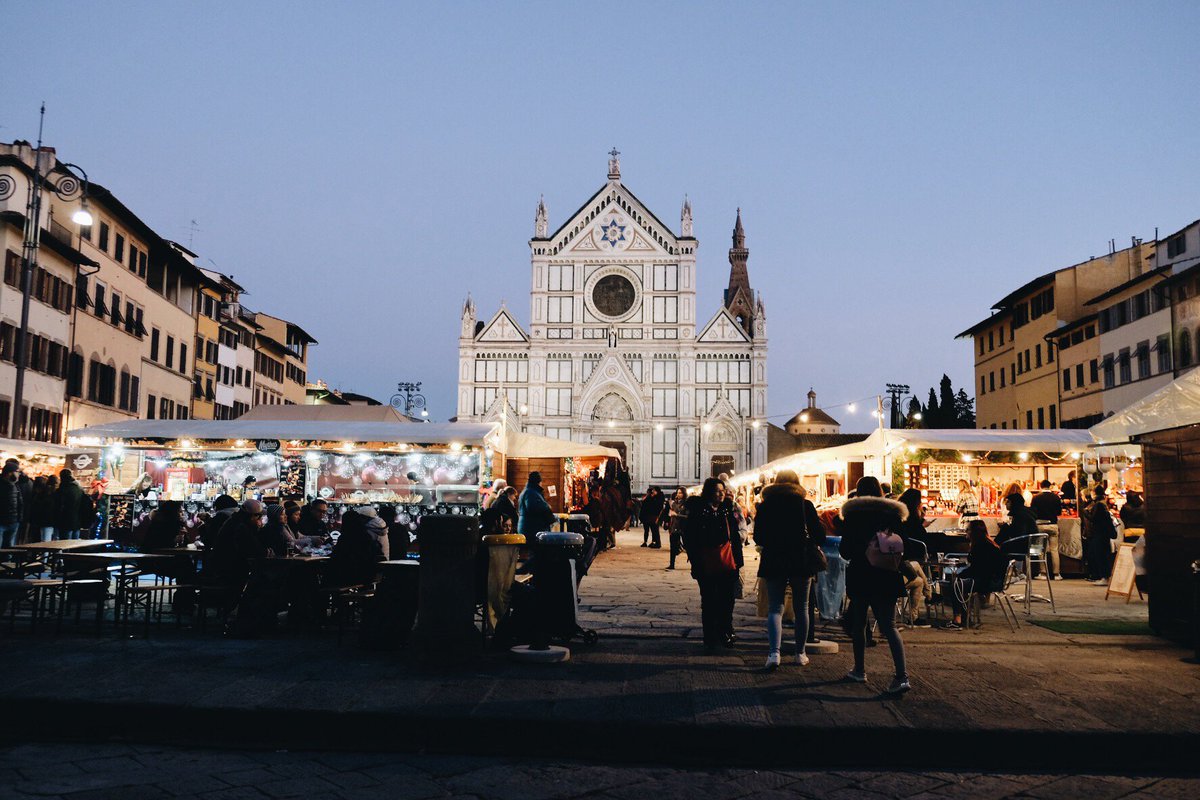
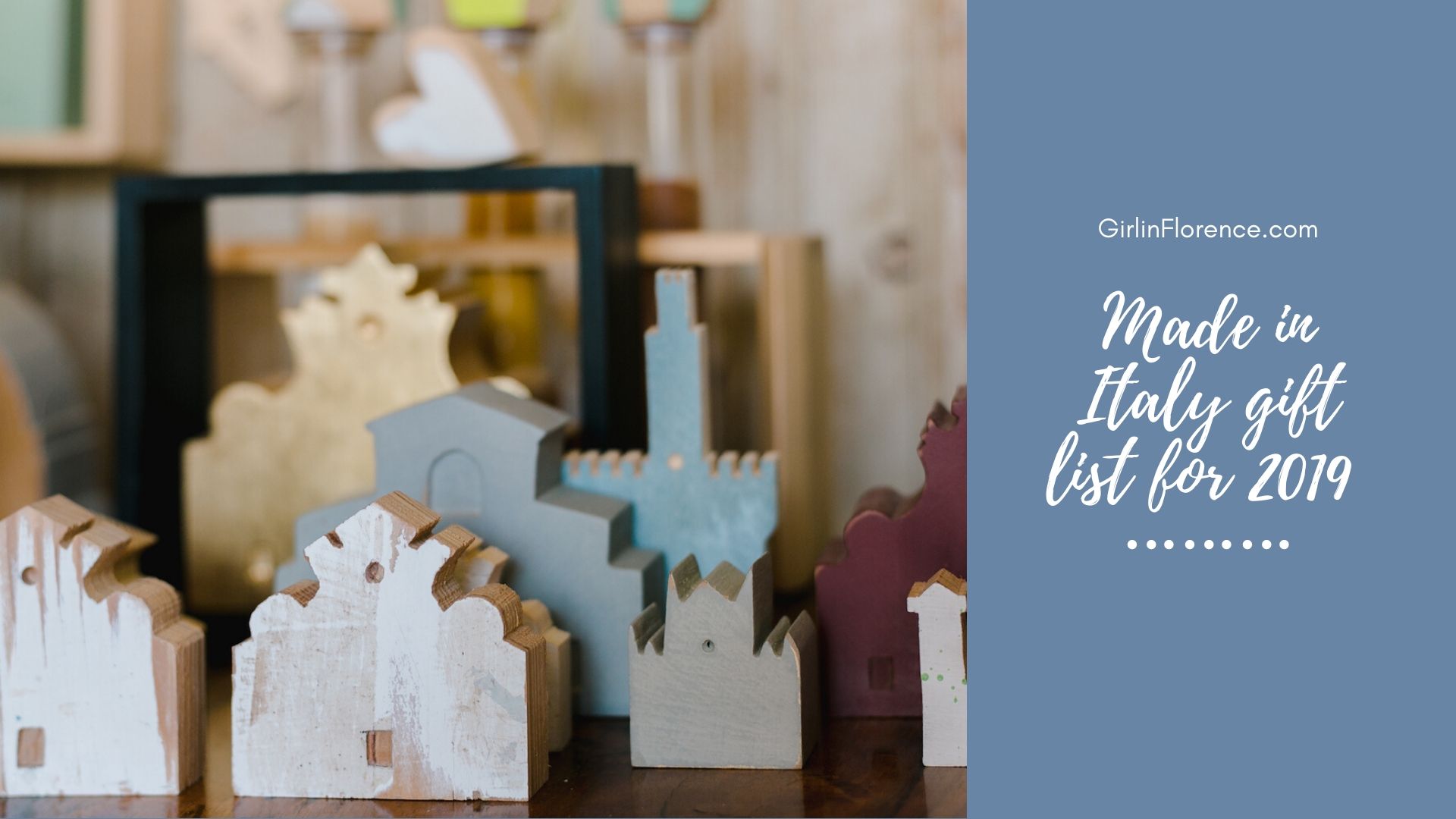
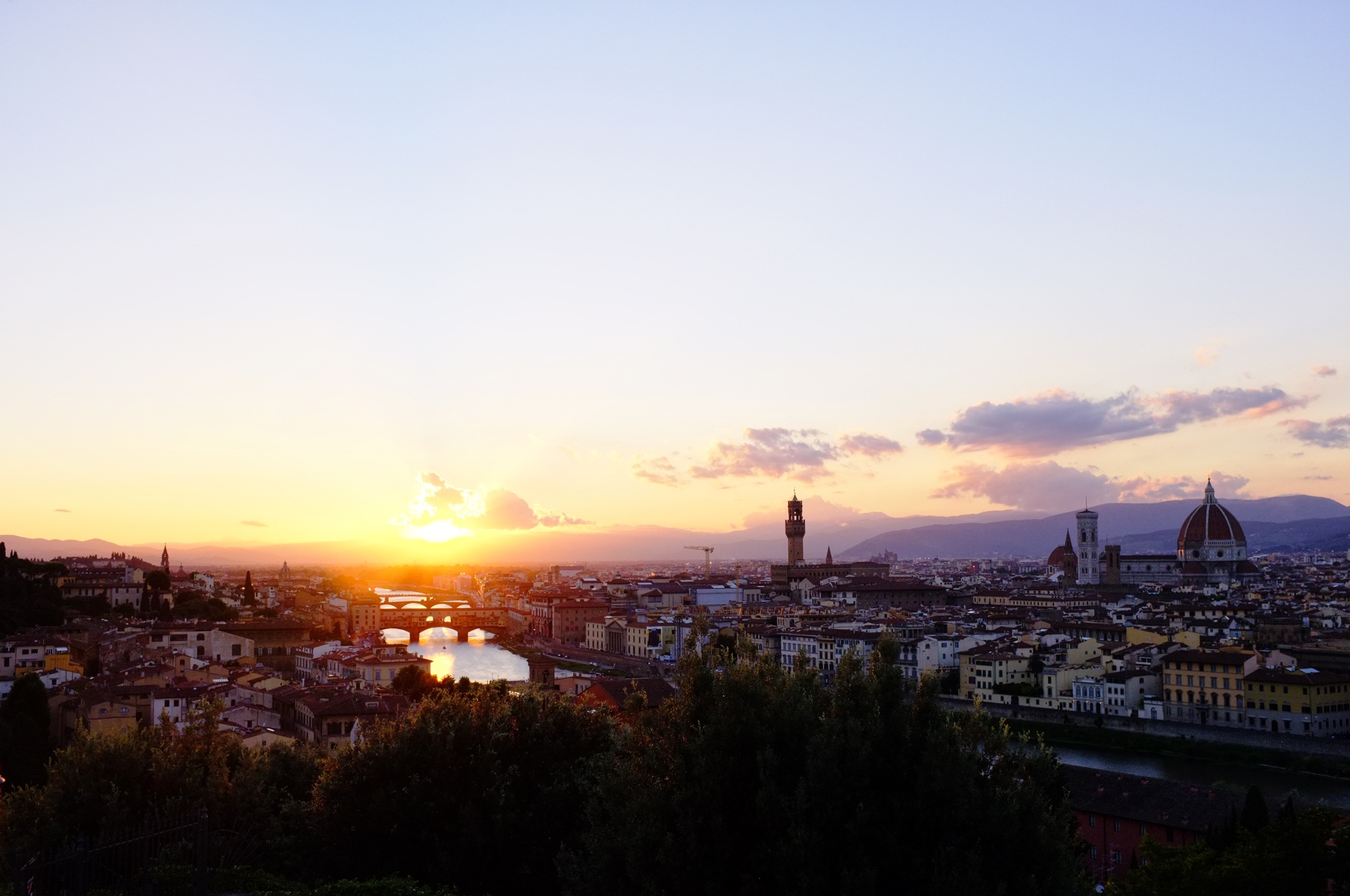
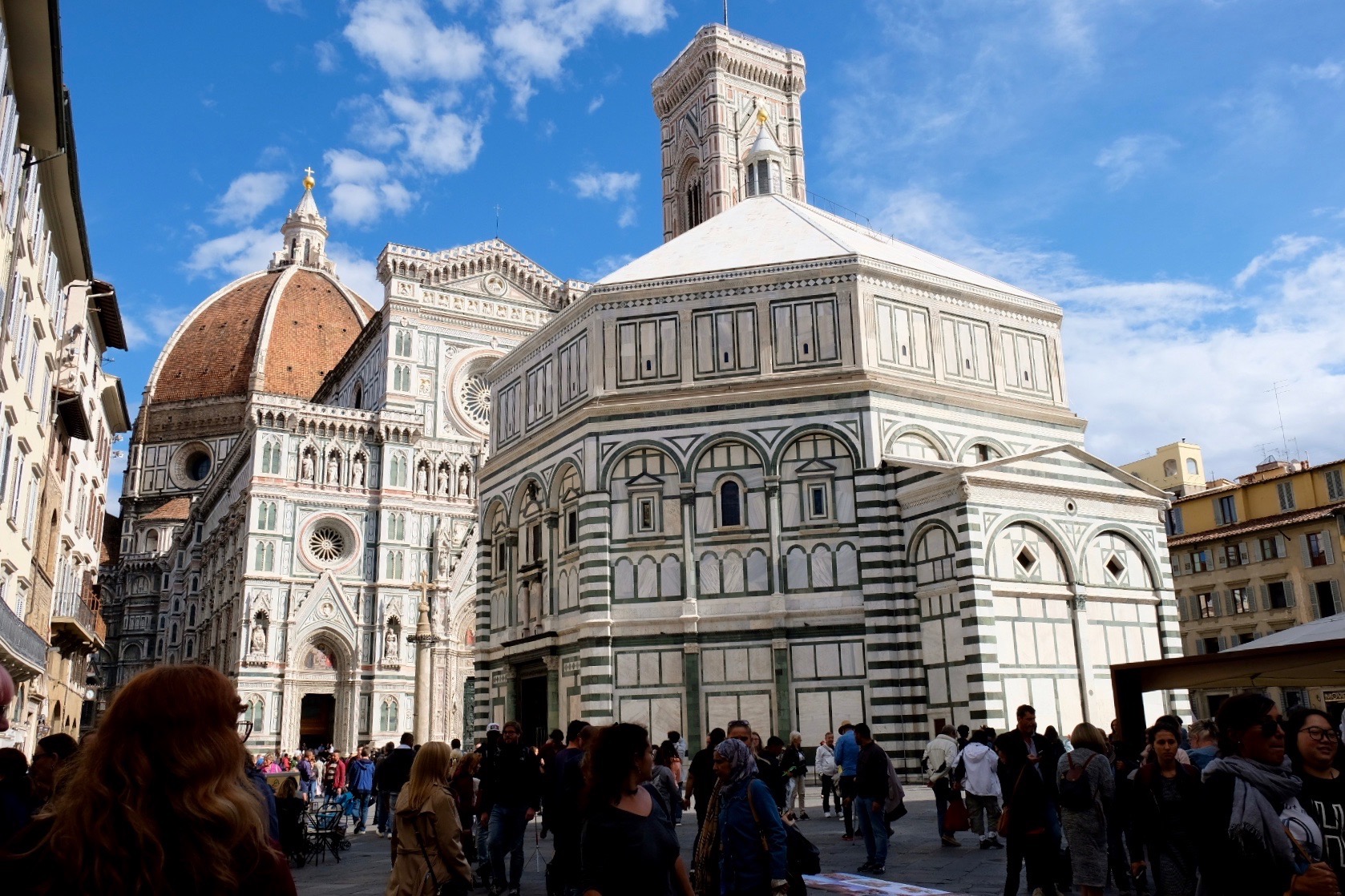
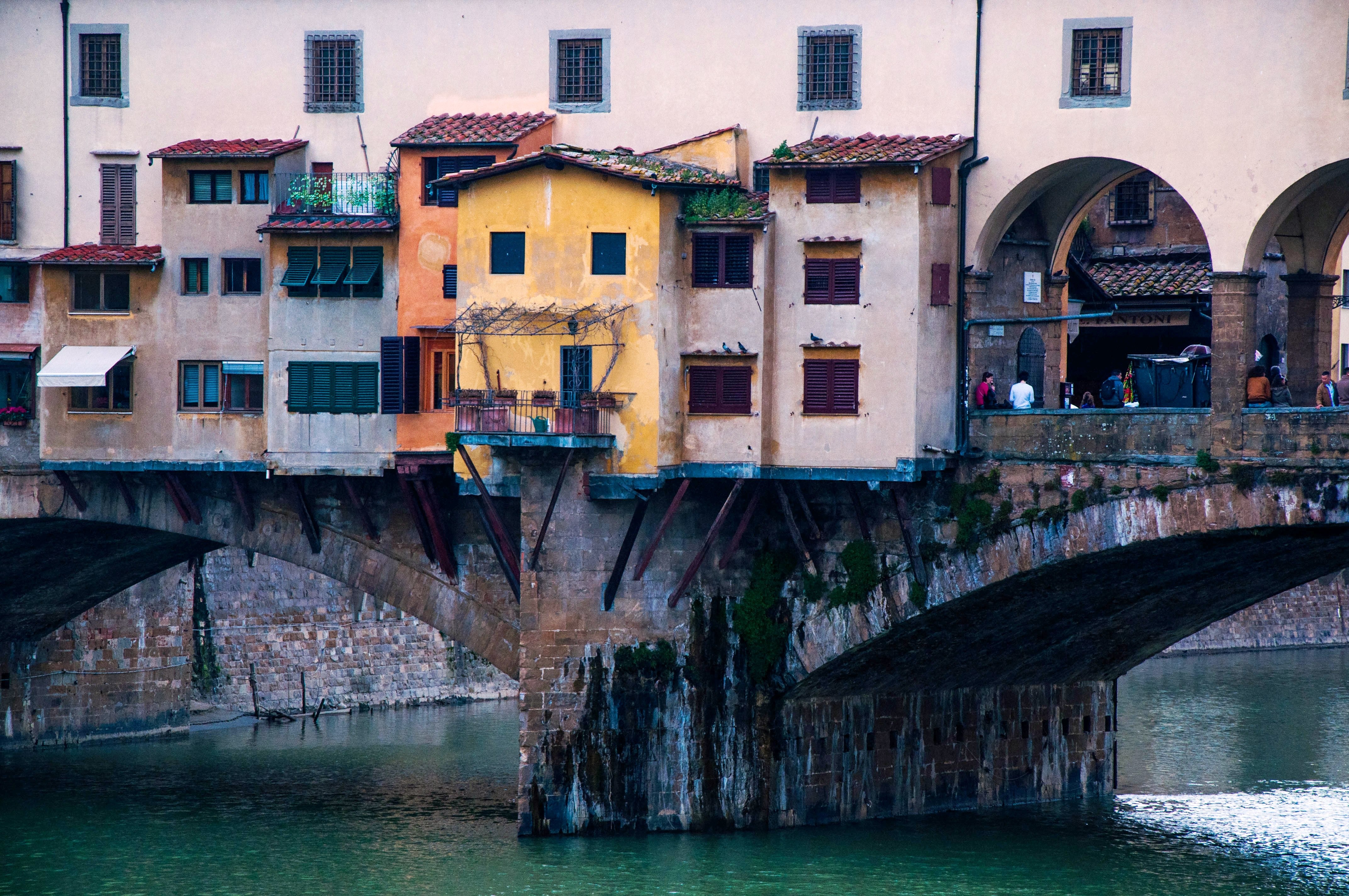
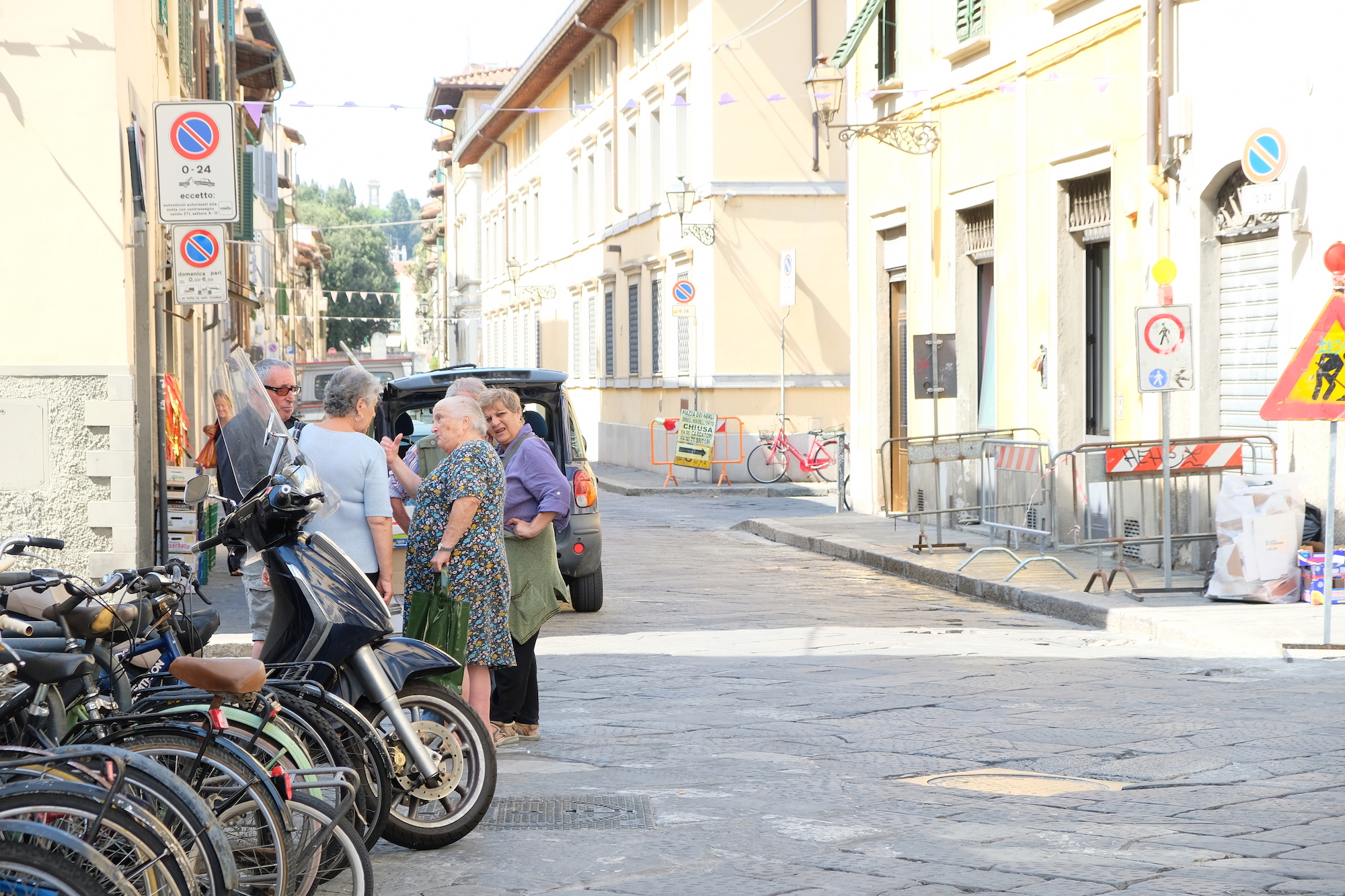
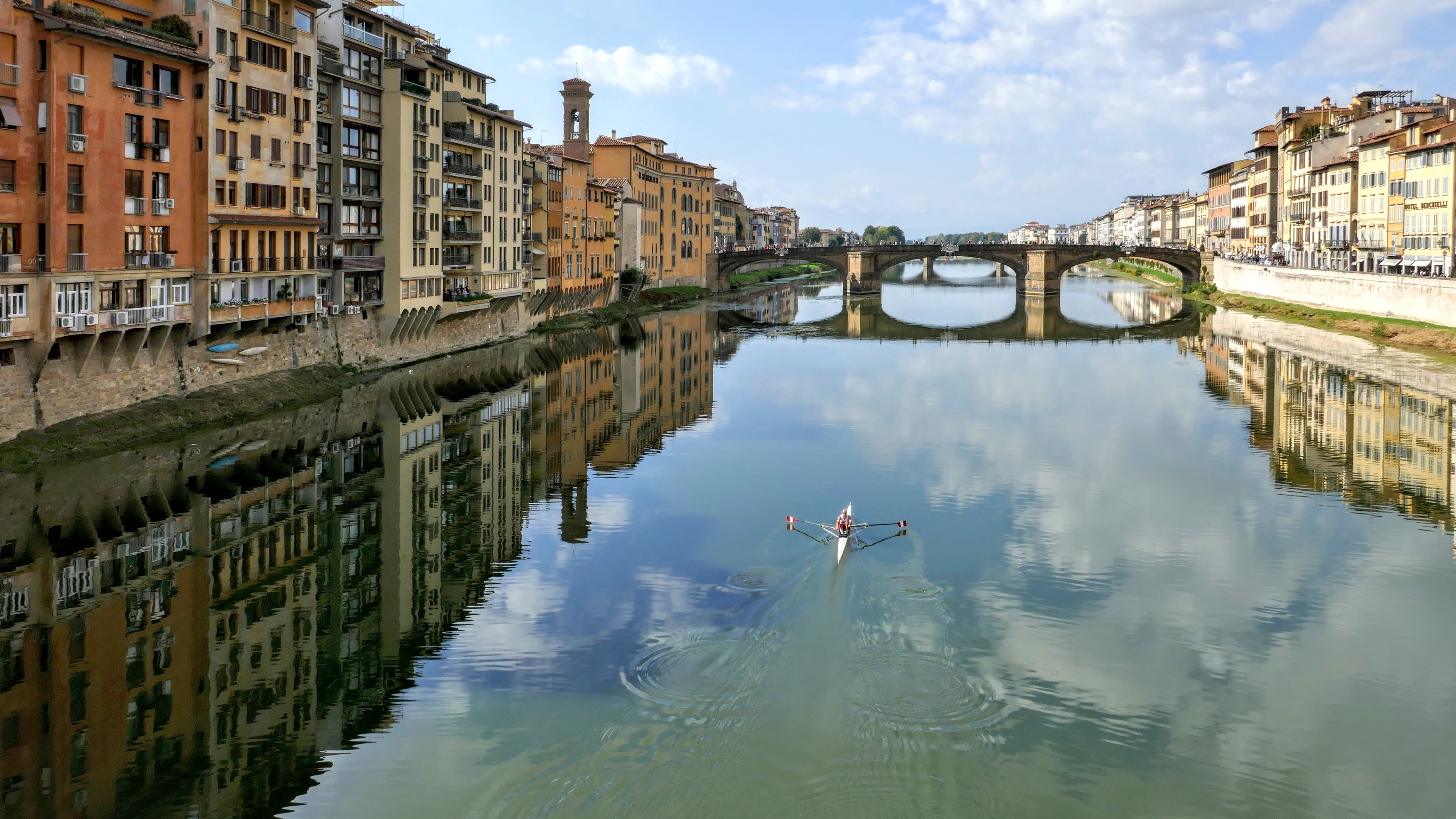
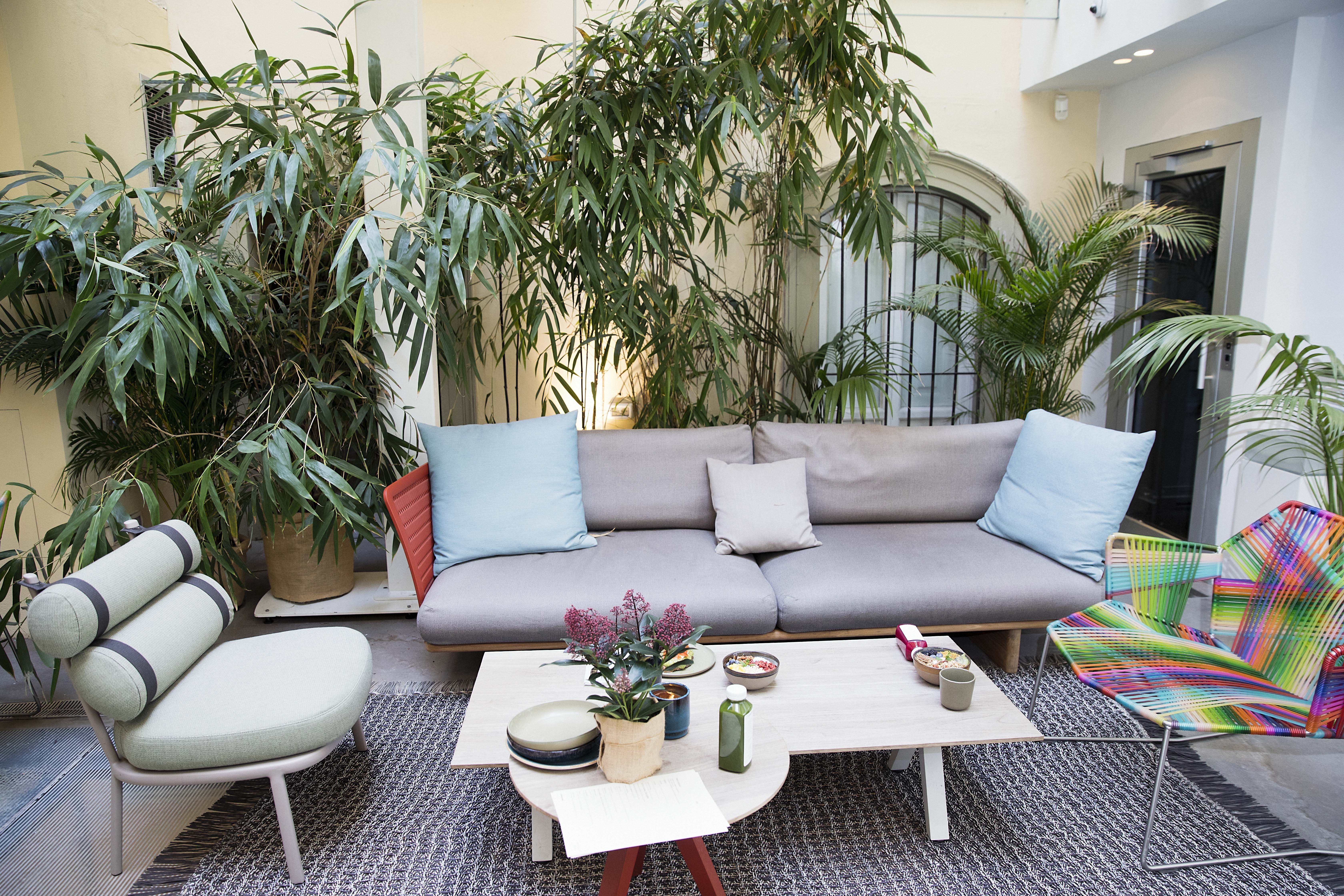
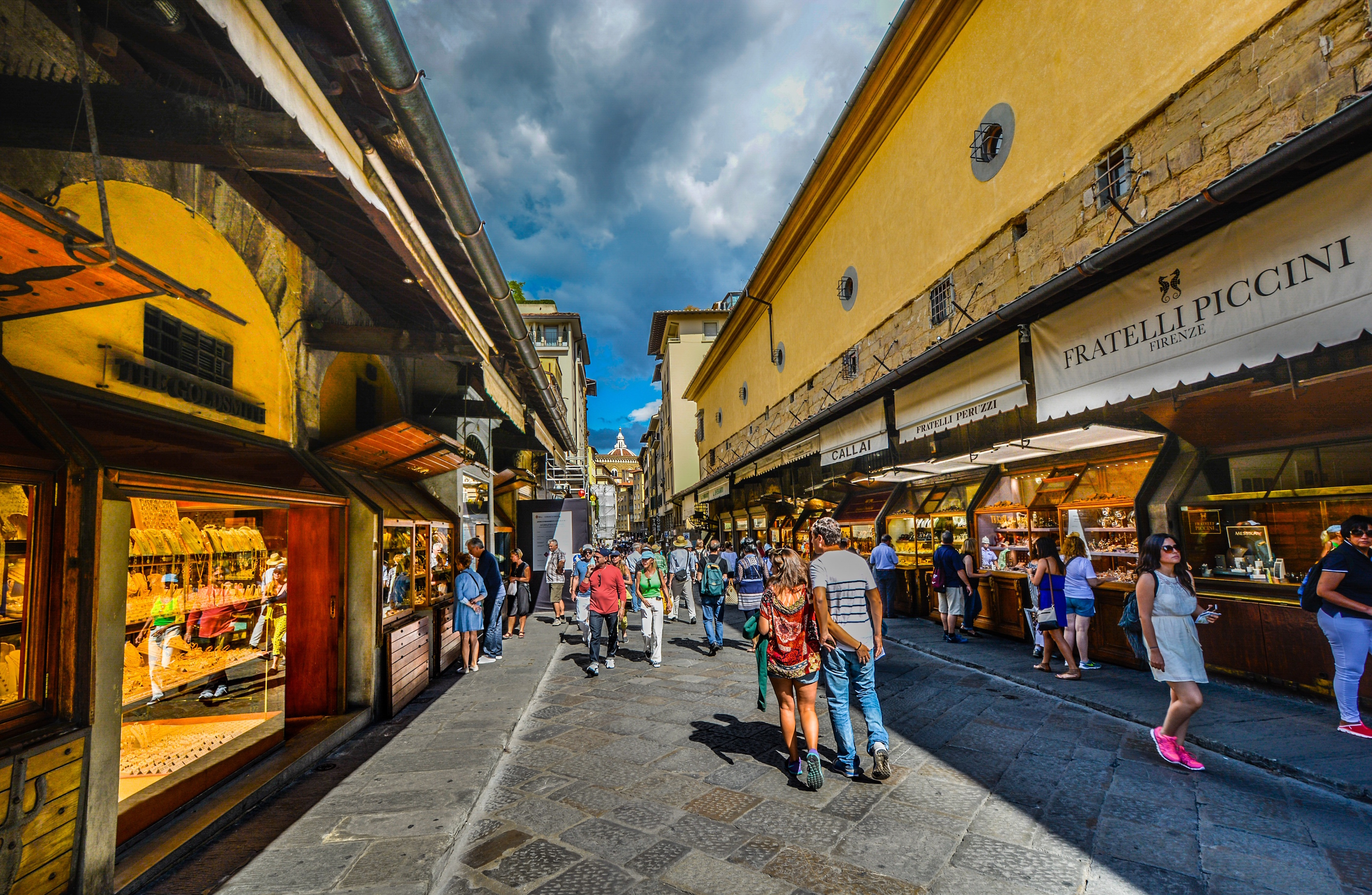

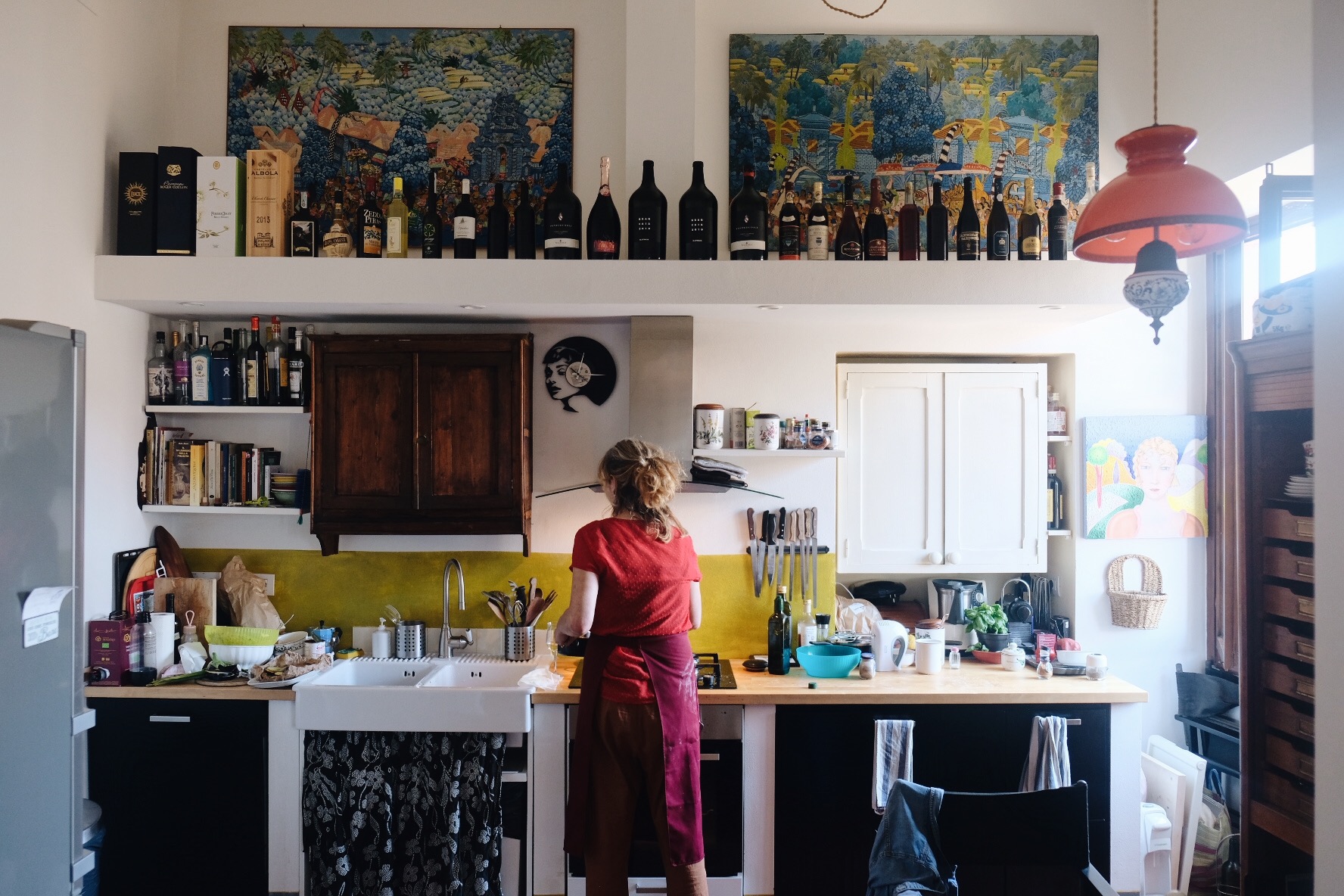
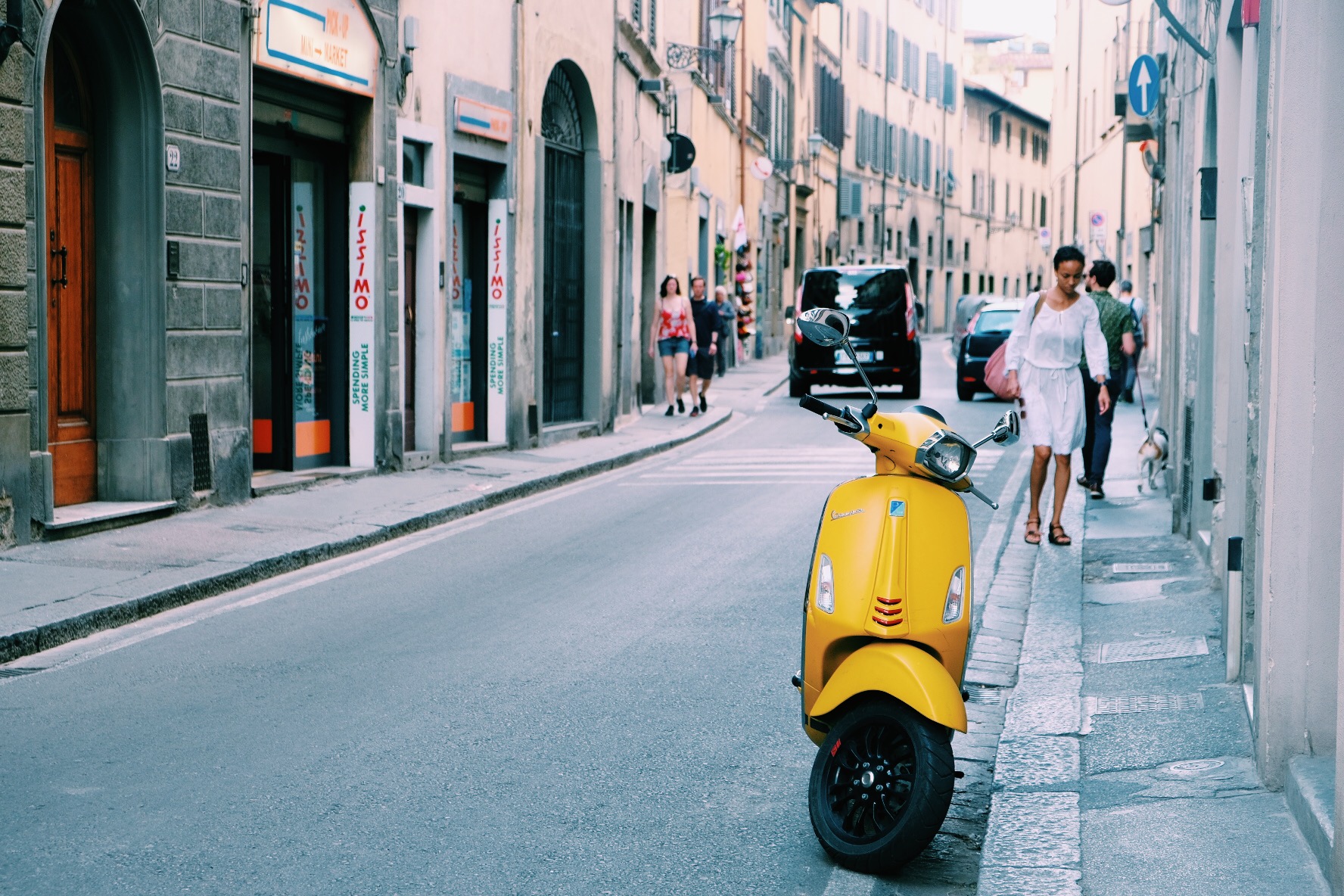
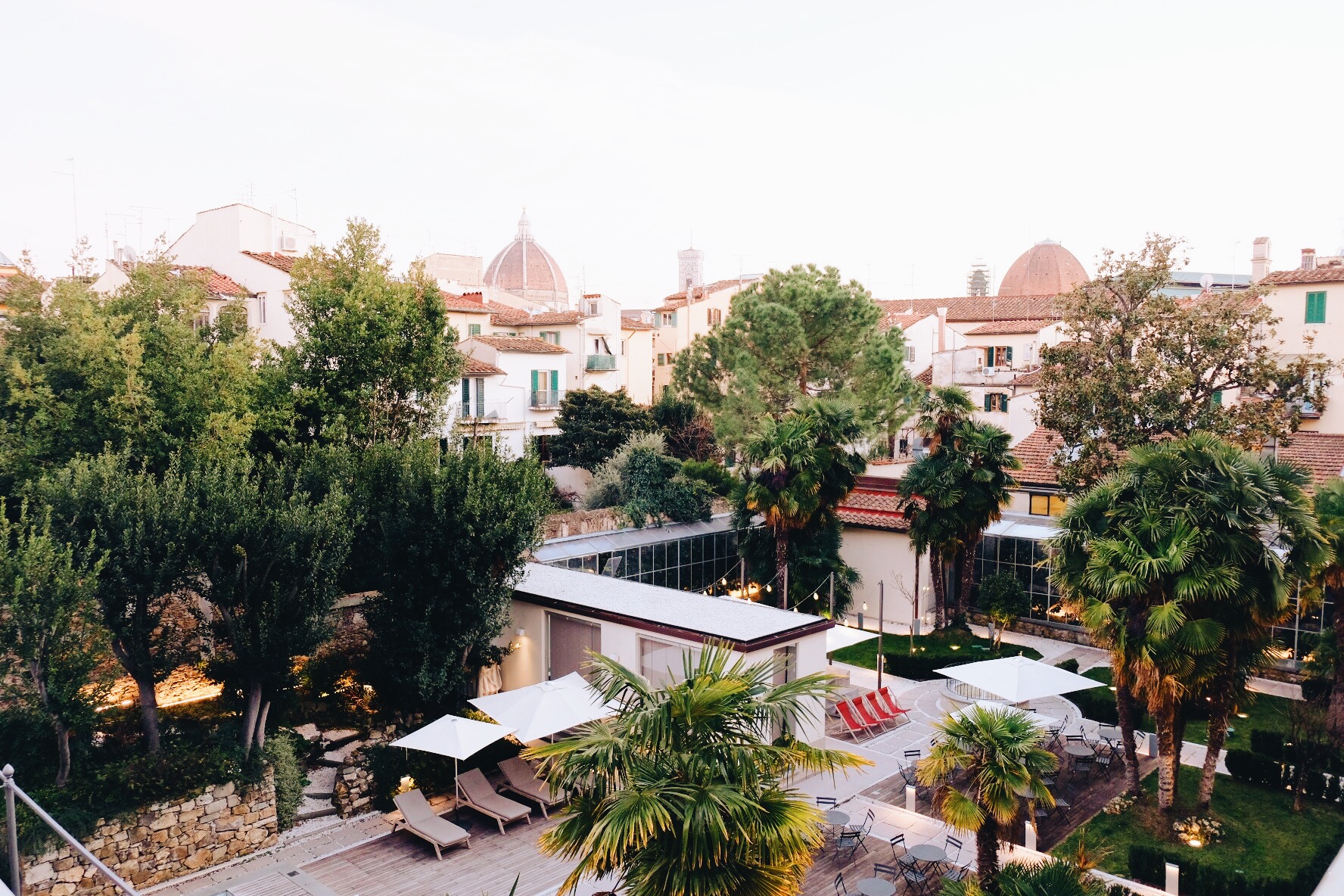
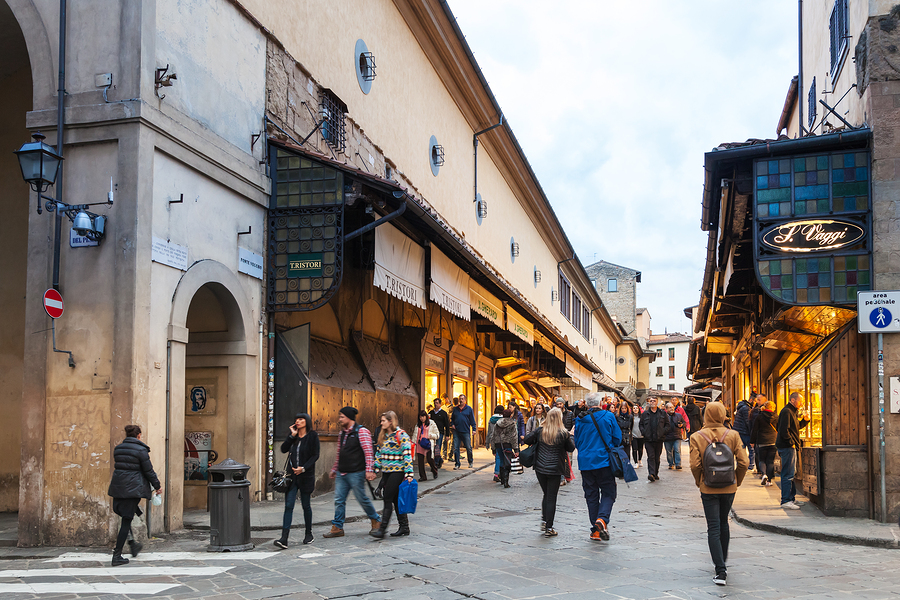

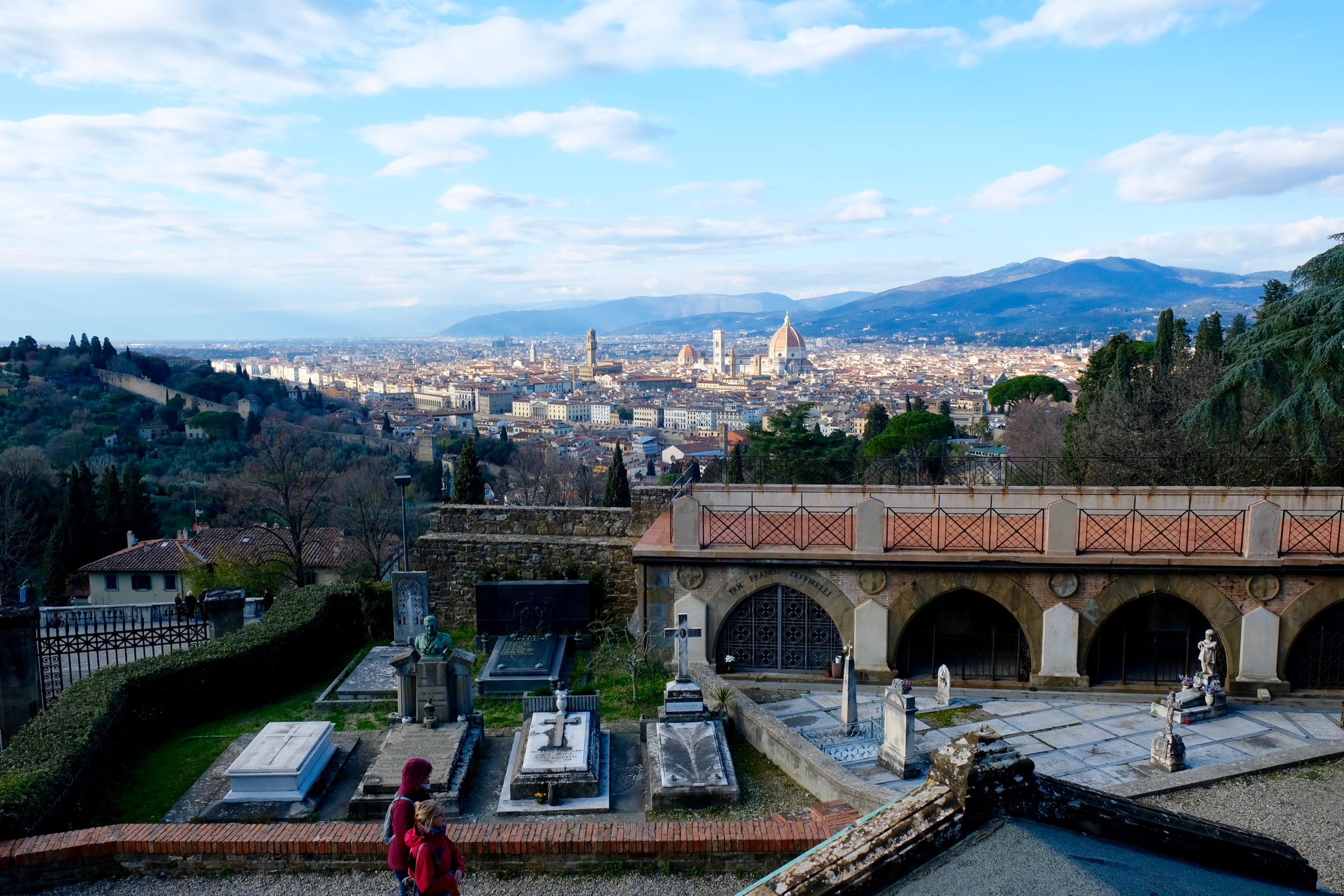


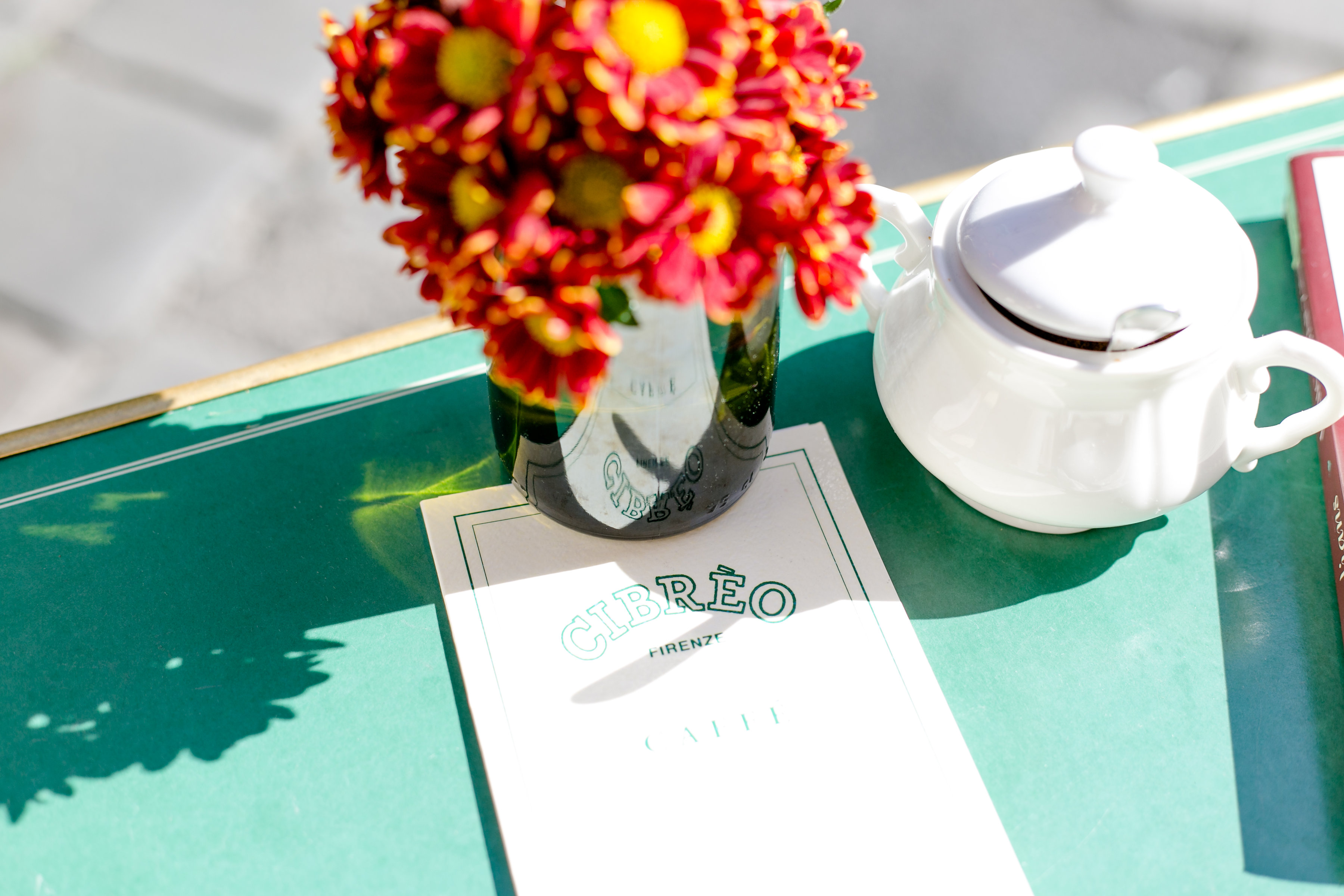
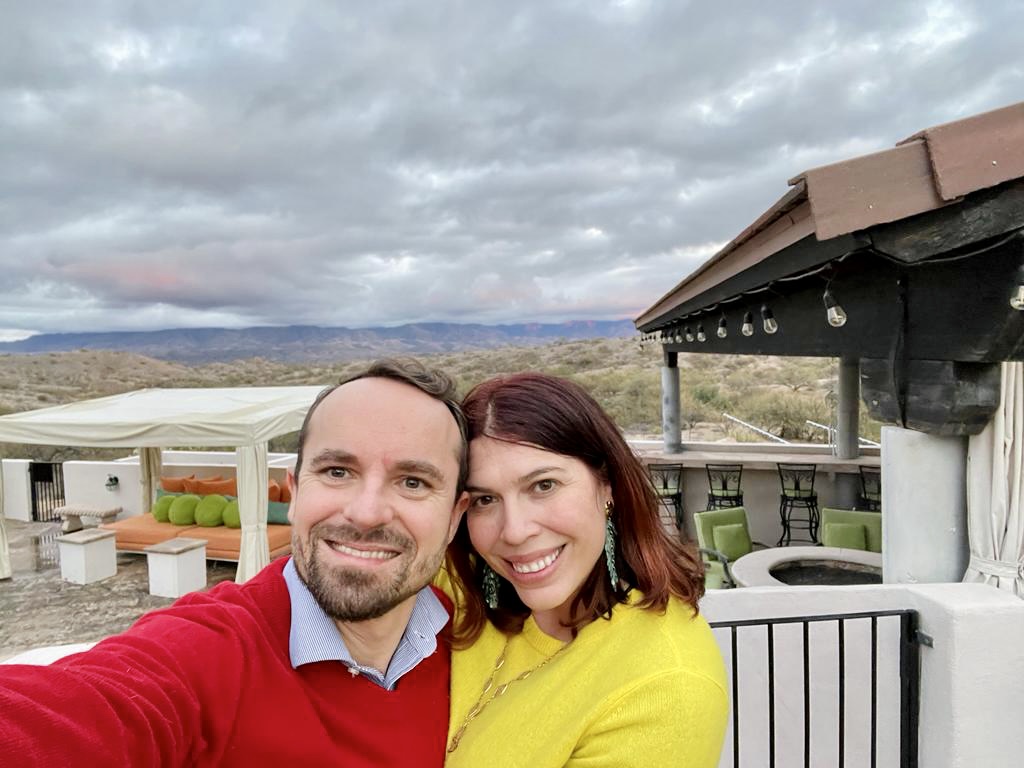



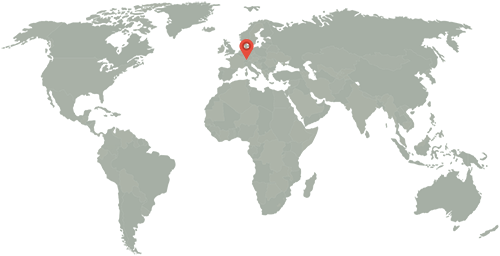
28 Responses
My mother took me to Florence for the first time in 1971. Our landlady spoke very good English and she loved to sit my mother down and tell her how much better it all was “before”. Before what we were never quite sure but she believed it with gusto and my mother got the “but you are different” line too based on her being an archaeologist, a dottoressa, a woman of letters, and not a wretched tourist! Not that my mother was there professionally, her specialty involved wearing wellie boots in much colder, bleaker places, but the landlady liked to feel that her guests were a cut above. For myself… I don’t know. I haven’t been to Florence since around 2000 and it was too busy for me, much busier than 1986 when I lived there for a year, and that was busier than 1979 the last year my mother went, and so on and on. Perhaps there was a perfect moment where tourist income and Florentine life balanced but no-one will agree on when.
When I was young I thought Italian girls were so glamorous and desperately wanted to be mistaken for one. Never happened. A couple of years ago though when I was living in Verona and had gained a little weight and was wearing muted colours with my sensible shoes and nice gold jewellery I realised all the oldies were saying buongiorno in the street, ladies nodded to me, elderly gents doffed hats and caps and held open doors. I have made it as an Italian at last… a Nonna!
Thank you Isabel so much for sharing your comment! I have heard since the dawn of my days in Italy about how much Italy was “better” before. Evidence was usually in the form of fond childhood memories which of course, varied on the person you spoke too. It’s fascinating actually. Florence is very very crowded in high season but still, it is an Italian city, that like Rome and Milan, reflects the International audience it attracts. Italy is a changing place, sure, and mass tourism is partly the reason. But I always think, wasn’t it always? The Verona memory you shared made me smile :). An elegant city, that place!
Enjoyed your rant. I like it when someone goes on about the no-good extracomunitari and then when I point out that Americans are also extracomunitari, they’re either surprised, shocked or as you say, respond with something like, “But you’re not like them.”
Spot on.
Georgette, a wonderful editorial today. I’m just visiting in Florence, this time for a month, last time for two. The situation you described could be replayed with any expat living in any country in the world. I lived in Indonesia for four years, and although I spoke fluent Bahasa, albeit with a southern accent, the locals were more than pleased to take my money, practice their English with me, and enjoy the alcohol I was able to purchase at the embassy became I was a diplomat. All the time rolling their eyes behind my back; it’s a vicious circle. I applaud what you’re able to do today with social media and hard work, and look forward to following you in the future. Remember you are a resident of Firenze because you choose to be, the lady in shop because of her birth. Where would she choose to love?
I think your husband looks French 🙂 I cannot stand it with English signs in the shops , annoys me and I only speak English with a smattering of Italian or French. I love France , I love Paris but I adore Italy ♥♥ Would like to live in either , right close to the border to cross over each day .. 🙂 🙂 I understand what you are saying but then I get what they are saying too.. especially the older generation. They are seeing a huge change in their country.. maybe like France too. Don’t get me started on England ..!! Italians are so different , cannot describe it and I have met many and have Italian family who live there.
I am going to stop there before I go off on a huge rant 🙂
You had something very worthwhile to say, and stated it very well. I have been to Europe 4 times, the first in 1969 in my early 20’s, Each stay was between one and 6 months. Have things changed? Of course they have. It would be a sad commentary if they had not. Sometimes for the better and sometimes not. And I had forgotten how the Italians are not fond of the French, and the French not fond of the British and so on. And the city people wishing the country people would stay in the country and vice versa .. And, did your husband get the tie before you blew your cool?
Thank you Joie, I felt like this was a bit of a rant but it was part of our blogger roundtable and it was pouring out of my brain so why not transmit it to this blog? A lot of people are very resistant to change, it’s nothing new and it probably will never be, but it just happens, and what matters more is how we handle it. My husband did get the tie before I blew my cool but I almost wish he didn’t…
eheh the part about you being sensitive to the line “Ma, parli Italiano benissimo, brava” I understand completely! I’ve been living in Australia for nearly 5 years, and there’s always someone that asks me “where is you accent from?”. I know that most of them (if not all of them) are sincerely interested and fascinated by a foreign accent, but for me it’s like pointing out that I do have an accent, while I’d prefer to blend in with the locals.
But I really think that they’re not being rude, they’re just showing genuine interest and admiration for someone that masters the language even though it’s not their mother tongue.
Be proud of your Italian, even more because it’s your 2nd or 3rd language!
Thanks Daniela for taking the time to comment. You are probably very right, I do feel that most of the time it is curiosity, as I would be growing up in texas and coming from someone from abroad. There are other things that annoy me more (switching to English when I speak Italian for example.) but it was something that I wanted to know if anyone else felt that same way. In any case I have told my husband to correct my accent and as you rightly mentioned, I am proud!
As you know, I landed in Florence in 1969–a whopping 3 years after The Flood (and 24 years after the end of WWII–which Italy lost thumpingly in case anyone forgot). Was it better then? Well, the cleanup was still ongoing and Florence boasted a pong that I’ll never forget. Palazzo walls still were festooned with bullet holes along with mud stains marking where the Arno had risen to 3 years earlier. Not an inspiring sight.
On the upside, Florence was gobsmackingly beautiful in the way Sophia Loren might look after a pretty serious car accident: a bit of a mess but the underlying beauty was undiminished. It was also still a “town” in the sense you could find all those intriguing little shops that spoke quietly of times past, each one dedicated to a single craft: mercerie, drogherie, passamanerie, latterie. You went to a shop for one item, chatted with, in most cases, the actual store owner, who dutifully hand-wrapped your purchase–which could have been a tiny box of straight pins–in paper, as if it were a Christmas gift. Then you went on to your next errand. Yes, slow as molasses, but there was a genuine sense of community, of cosiness. Of being a real part of it. Those shops are long gone, first replaced by tourist tat outlets and pizza al taglio dumps, then by big name designers. The sales people aren’t even Italian any more and probably have no clue who the owner is–or care. They certainly don’t care who you are.
All your neighbours greeted you every time they ran into you. No one ever criticised your clumsy Italian or pointed out you obviously weren’t born in Florence (people from other parts of Italy got regularly slagged off, though: you should have heard what Florentines had to say about Neapolitans). They actually had manners then, and they might want to remember that when they start carping about “the good old days” that are no longer.
And for the record, I’ve been speaking Italian for well over 45 years now, my pronunciation once got praises (believe it or not, I used to get dropped jaws on the discovery I was American and not born and raised in Italy), and I now get “ma sei straniera, di dove?”. I think they’re just hypersensitive to foreigners these days. But I can sort of see why in a way: they probably feel slightly “invaded” and therefore put-upon by people who don’t seem to give a damn about them and the fact they are the actual indigenes. There are still lots of non-Italians living here who can’t be bothered to learn Italian, which most natives find a bit offensive actually, so when they run across someone who has taken the trouble, they for some mysterious reason begrudgingly admit that, offering the kind of backhanded praise you mentioned. (They used to fall all over you in gratitude you didn’t force them to make fools of themselves in English.)
“Florence was gobsmackingly beautiful in the way Sophia Loren might look after a pretty serious car accident” oh that is BRILLIANT Temple. Thank you for making me smile! What an experience it must have been to see Florence in that state. I am absolutely fascinated by the 1966 flood, mores for the outpouring of help from the community, both local and International and you actually got to get to see how long the cleanup took. Your description of Florence sounds so interesting, a bit of what I’ve seen elsewhere and like you I get bummed seeing treasured mom and pop shops close down in favor of big name designers and crap food. ps. I don’t understand why you would live in a country and not try and learn the language but I do acknowledge that it can be very very difficult. I am currently feeling the pain in French but slowly, surely, the lessons are paying off. Thanks again for your wonderful perspective.
As someone who lives part time in Lucca (for 5 years since I bought my place) and part time in London (for 20 years and now holds a british passport), but was born in America, I cannot tell you how angry I get about both countries’ approach to immigrants. I’ve been lucky to be accepted in both places–although yes, I still cringe a bit when the Italians pick me up on my accent. But I’m white, and from America, and a professional, so I’m an “ok” immigrant. I’m not “them” As you point out, it’s not a question of immigrants, it’s a question of non-white immigrants and generally non-christian immigrants that they’re talking about. When you challenge them with, I’m an immigrant too, they really don’t know what to say and generally try to move the topic on. Interestingly the racism is a bit more out in the open here in Britain, with the recent vote for Brexit, but if anything I find it permeates Italian society even more profoundly. I love my life in Italy but I think, like in any place, once you live there you start to see the problems as well as the nicely dressed up windows for the tourists.
Hello Allison, thank you so much for sharing your experience. The “foot in the mouth” syndrome when it comes to someone forgetting that they’re talking to an immigrant is as you say, very cringe-worthy. I’ve heard it here, I’ve heard it in the USA, it’s definitely something that unfortunately traverses borders (no pun intended). I think it’s important to think critically about any place you live, without that you have a sort of complacency. I wouldn’t want to be a blogger who only touts the positives of a place nor one that constantly compares Italy vs. whereverImfrom, it’s really fascinating and interesting to hear from you guys too.
As a Canadian who lived in England and now calls Perugia home, I couldn’t agree more.
Beautiful blog you have. And how fortunate you are to live in one of the loveliest cities of the world! Are you an art historian? As others posted, I think people are interested in where you’re from if they compliment your language skills or ask Qs about you based on your accent. It’s also a cultural politeness strategy. What a nice opportunity to share with them why you’ve chosen their home in which to build a new life 😉 But if it bothers you enough to blog about it, you may wish to consider living in less touristy town (not difficult – Florence tops the tourist list) where vendors may not have the skills or desire to switch to English to try to accommodate you. I find Italians to be quite friendly — perhaps you’d like living in a country where people are less complimentary, open and friendly.
I hear/am asked similar Q’s nearly every day having lived in Italy and Germany for 12+ yrs, but I’ve learned to try to turn it into a discussion by asking THEM questions; it’s good lang practice for me (I still need it and always will) but can be interesting to hear about others’ lives and to learn about the area through them.
There are some VERY INTERESTING opinions about Americans that they might even share, esp. in this political climate – and perhaps we can break some of the stereotypes. Perhaps not…
You mention Europeans like Le Pen using ‘fear of the other’ and nationalism as a platform; would be interesting to read your views, and views of your fellow Florentines, of the 62m Americans who voted for Trump to use similar tactics as Le Pen to ‘secure borders’, such as walls and bans on ‘potential threats’, but to support gun-owning as a constitutional right.
Great blog!
Hello Michelle, I appreciate your kind words about the blog and your comment, I welcome discussion on the blog which is one of the reasons I started it. Regarding the language question, to be honest, I do agree that it’s often a curiosity and I welcome that most of the time, and sometimes I don’t. To be fair, I didn’t write this post to complain about that question, it was an opener on the discussion I had in a shop that had me reflective and since we were covering the topic of “foreign” on our blogger roundtable, it felt appropriate as a time to talk about it on the blog. As I noted in the post (which might have been missed), most of my experiences here are extremely positive and I love opening up discussions with my fellow residents here in Florence. I just believe in talking about the good and the bad as I think anyone who talks about Italy should. As always, it’s always based on entirely personal experiences. I love living in this town too by the way, touristy or not ;-).
Regarding Americans vs. Europeans, you know I consider myself Italian i.e.: European as far as where I identify a lot of my ideals currently. Like many others, both here in Italy and back in the USA, I was shocked and saddened by this current election results and what it implicates. It shows that in many places, i.e.: France, Britain, USA, there is a disconnect with the political parties of the past that needs to be rectified or at the very least examined by those on both the right and the left.All I can do is hope people choose a platform that isn’t based on “fear.”
Just last night I was listening to “The Italians” and he was discussing the concept of “being Italian” due to birth, not due to time spent living here…..and how that was not in the favor of recent immigrants hoping to make a new life here. …seems to be an uphill battle.
I grew up in Rome, as an American. I have many American friends who grew up there as well, and unlike me are absolutely fluent in Italian, but despite their 100 command of the language they will never be Italians in the eyes of a lot of Italians. And while my Italian is not as good as theirs I no longer get irritated when shopkeepers switch to English after one or two words by me. I simply respond in Italian. But I am secretly pleased when Italians stop me on the street to ask for directions in Italian. Once that happened in Rome and I told the people where a certain Hotel was, and another Italian in the conversation said, in amazement, even this American knows where it is. Certo!
Thanks for writing this. Always nice to know I’m not the only one feeling this way. I’ve been in Italy for 4 years and I get the where are you from all the time which generally doesn’t bother me, but my Italian husband’s english is such that english speakers and Italians think his Italian is amazing (and are surprised he isn’t English). Ah well. Keep challenging peoples ideas on immigrants.
some people just will never accept that reality, Georgette. The States were built by refugees, slaves, foreigners, here by their free will or not. And now we’re so xenophobic to immigrants that it’s ludicrous. My mom’s been here 50 years and everyone still asks about her accent-she HATES it. While the answer is simple, she doesn’t want to talk about why she’s here(political refugee, and those politics are very complicated). So as her daughter, how can I judge others for wanting to escape the CRAZY that is political, religious, etc persecution. And now I am realizing disgusting, despotic totalitarian rulers who starve/gas/enslave their people are more of the NORM in many parts of this world, religious freedom and true democracy are like, the exception.
And as it pertains to Italy, broad generalizations aside-even Italians are acutely aware of where they originate from. You’ll hear it when friends tell you how they are different because their dad is from a small town in the North. Or their mom is not truly from Florence, but Venice. They speak different, or gasp, they eat different things!!! It’s almost in their genetic makeup to separate themselves by region. Whether in a good or bad way, it does define them. How they like their wine, how they like their pasta(or polenta), their olive oil. Goodness even my BFF tells me in her town everyone is gloomy, that is just their way. Then you go there, and you realize it’s true. So regionally, nationally, internationally, I think their mentality is that where you are from says a lot about you. In the US when you meet someone you’d like to get to know, you make a joke, ask them their name. There, the first question is, often, Italian to another Italian: “where are you from?”.
Hallo Georgette, I came across your blog some days ago and, as an Italian living in Italy, I should say that many of your remarks, those in the above post included, provide a very interesting complementary view on the “us and them” issue. I’d like to make some brief comments. The first one concerns speaking a foreign language in a foreign country. I’m not surprised that your husband speaks a better Italian than you, probably after less study/practice: he is just speaking another neo-Latin language. When I started learning Portuguese after meeting my partner I was surprised by how easily I progressed compared to the ever-troubling English! No need to say, no one detects that my husband is not Italian until he speaks his name. My Portuguese is less perfect, anyway I can easily deal with any kind of situation and Portuguese people are always pleased to meet a foreigner who gives proper attention to irregular verbs and specific terms. I’m perfectly aware that their positive judgement depends on the fact that I’m not a native. However, I feel much less criticized for my lack of a genuine local accent in Portugal than in Anglo-Saxon countries.
My second comment concerns love for complaining. I think this is a distinctive national feature of Italian natives. We do like complaining! For sure you noticed how low Italy scores in international ranking of self-assessed happiness! We could discuss about the objectivity of self-assessment… On the other hand, many of the comments you received on this post included a good deal of nostalgia for the good old times. The one about Sofia Loren after a car accident reminded me that even cowboys no longer look like John Wayne (thanks God!).
A final comment about “different shades of diversity”. I’m not surprised at all that, everywhere, people feel closer to foreigners with whom they share something – a cultural background, a way of living/thinking, some language for mutual understanding, and physical appearance, too. It’s just easier to get on well. Why so many US citizens in Florence and so few ones in … ? I think that acknowledging that differences exist is the first step to work on them – and maybe smooth them.
Thank you for your blog, I’ll keep following you!
Ciao Georgette! Loved hearing your thoughts on this topic. You’re right that there are so many different levels of feeling foreign. Living in Amalfi where English is so common, I don’t pay as much attention to whether I’m spoken to in Italian or English. Or maybe it’s just that after 10 years I’ve accepted the fact that a passaporto doesn’t make you actually Italian on all those levels. Most of the time when people switch over to English, it’s because they like practicing. So I usually continue in English because it seems rude not to. But the local policeman also yells out “Ciao Nebraska” every time I walk through the piazza. There is no getting away from where you’re from. But that makes me who I am … so I just smile and wave and keep on walking!
I’ve had many similar experiences here in Provence, France. A native explained to me that if there are people that think a certain way, you are allowed to express that opinion in public forms. For example, you can say racist things on the radio. This continues to shock me. There is a lot less shame in pointing out how the Muslims are taking over the country and on and on. There’s also this desire for the way things were, whatever that means. I constantly feel like I have to tiptoe around people because I’ll never be funny accepted as not being from here. Because we live in a small village, my partner keeps telling me to be nice to everyone but sometimes I’d like to speak my mind!
Hello Ashley, thank you for sharing your own experience. It seems like people where you are and here share a lot of the same characteristics. It was the same here to sort of “feel safe” to “speak their mind” here and totally forgetting that we too are immigrants, and they had no idea of our own religious backgrounds. I always wander, did people say these same things 50 years ago, just insert ___ nationality here? I feel you with sometimes having to censor yourself, that isn’t fun but yeah in a small village you don’t certainly want to openly fight with people. Let’s just hope that with the newly elected Macron, things might change. If anything, the spirit of locals. One can only hope..
Hi everybody, please don’t bother. I’m from Grosseto (still Tuscany!!), living in Florence sine 1995. And people keep asking me where I’m from! Particularly in Florence it’s very hard to make “local” friends. Even if you are Italian. Mid-age fragmentation is still in the DNA of the most.
Sorry for my English. I’m struggling to improve it.
Do you feel Italian? When you are abroad, in Japan, say, and someone asks you where you are from, what will your answer be?
Honestly I feel very European now after so many year’s here, but of course I wasn’t born in Italy so I would probably be honest and say an American who is on her road to becoming Italian 😉